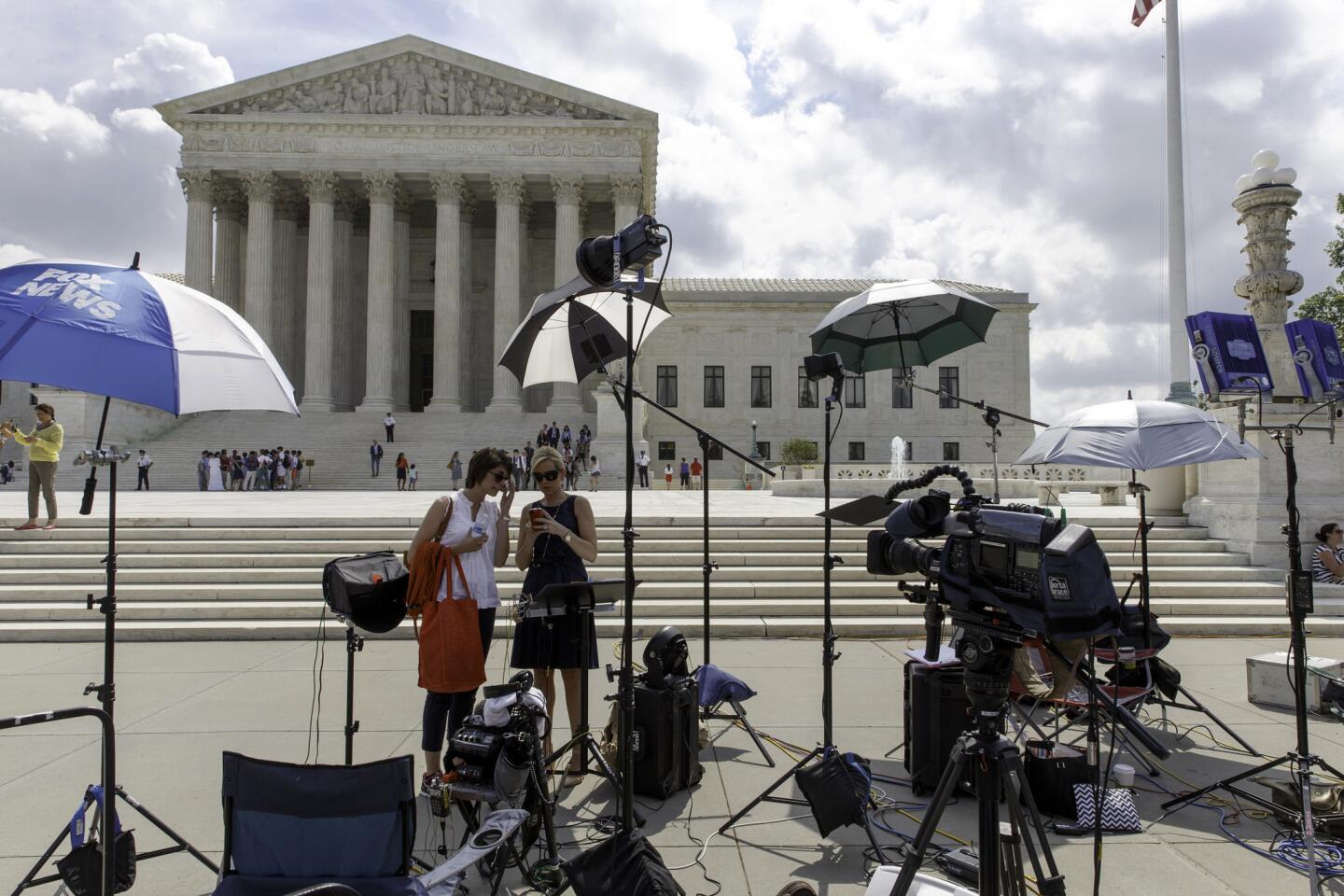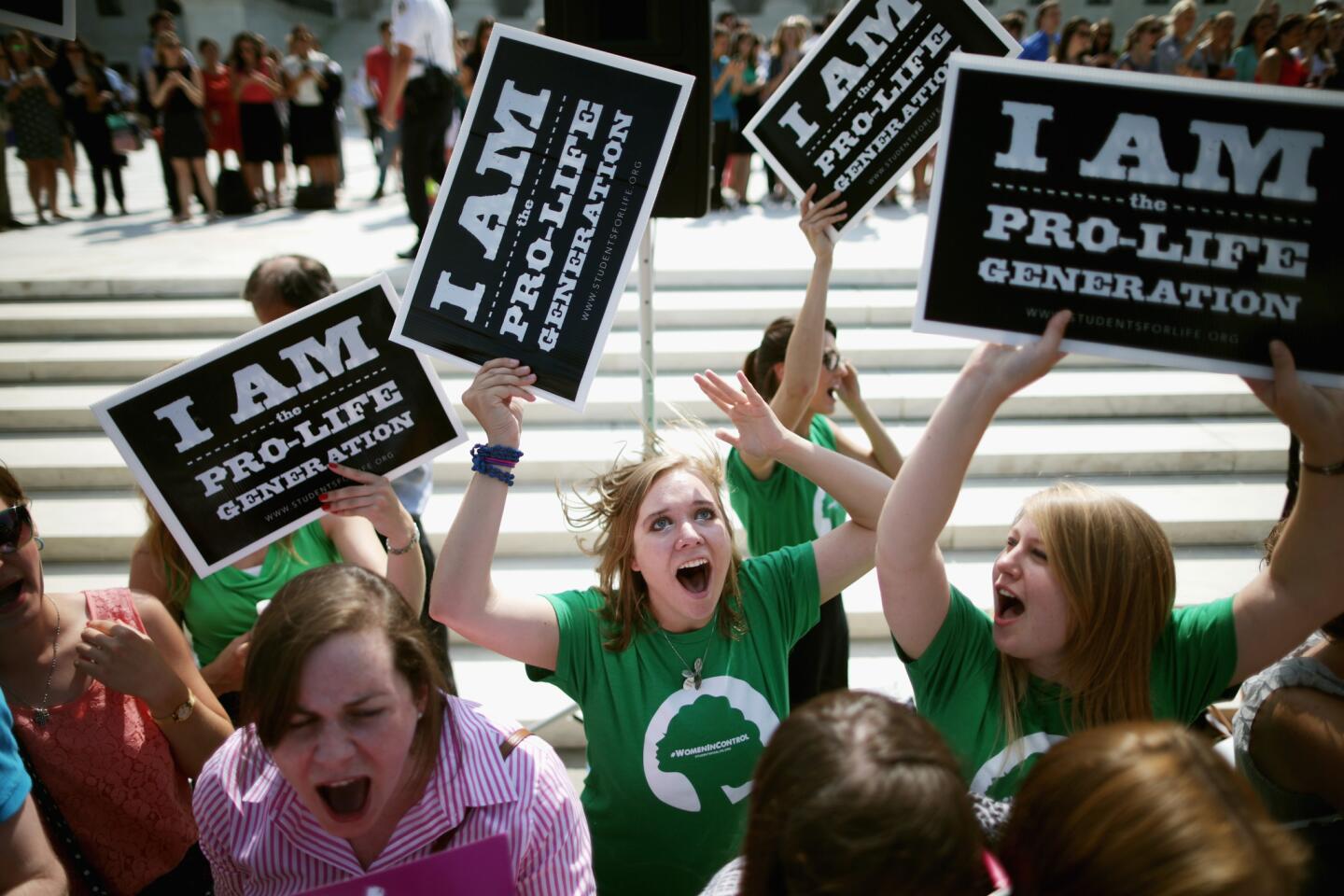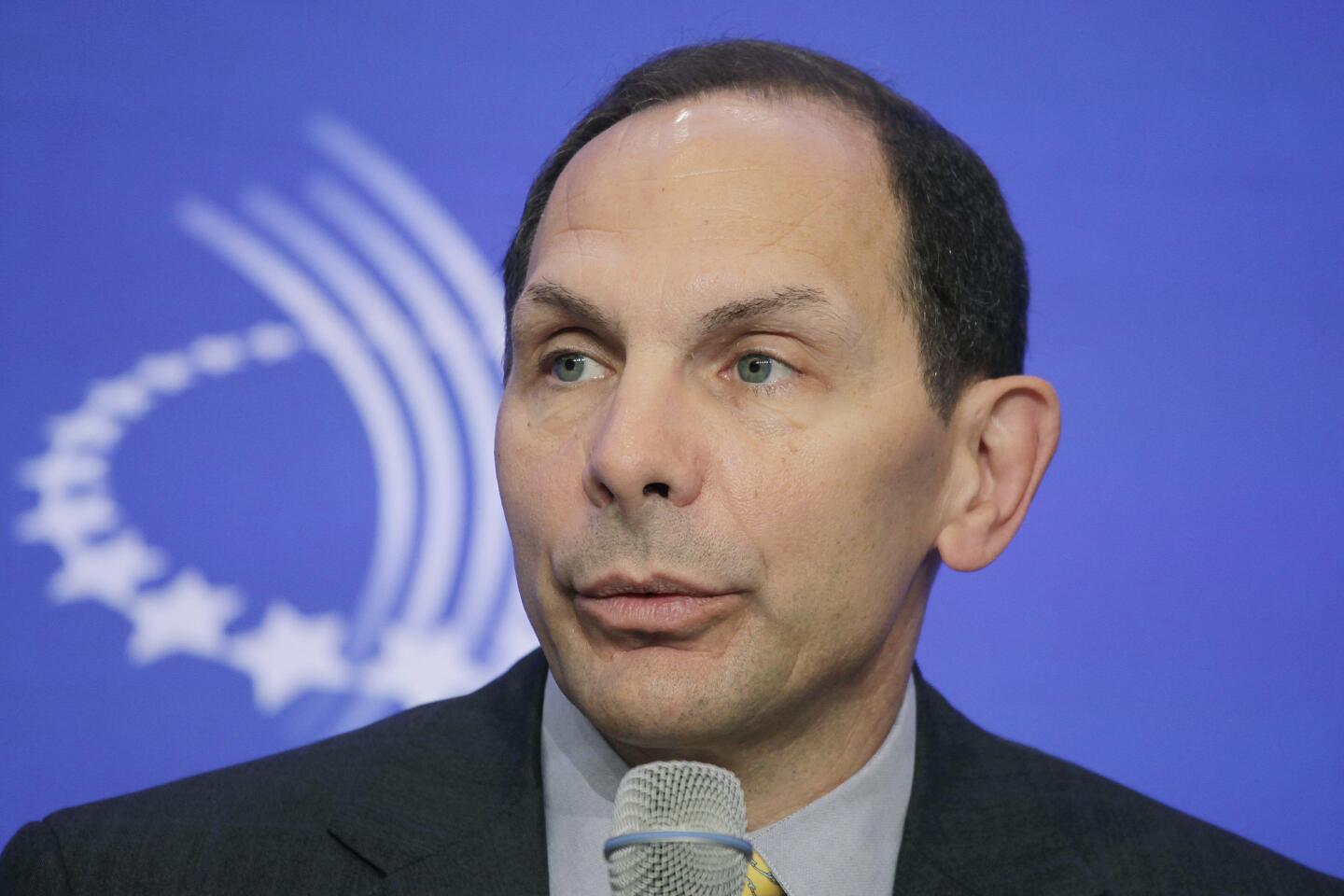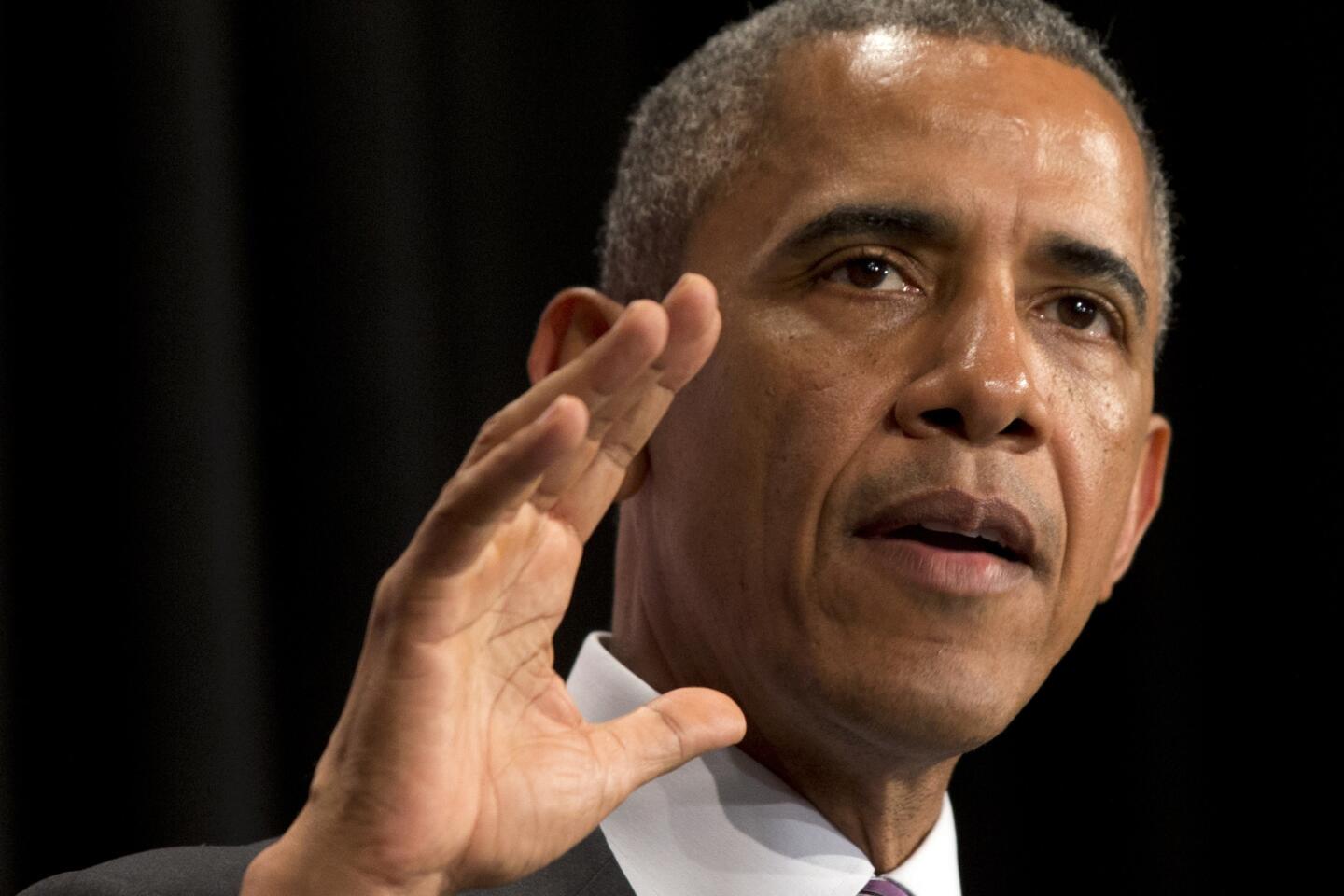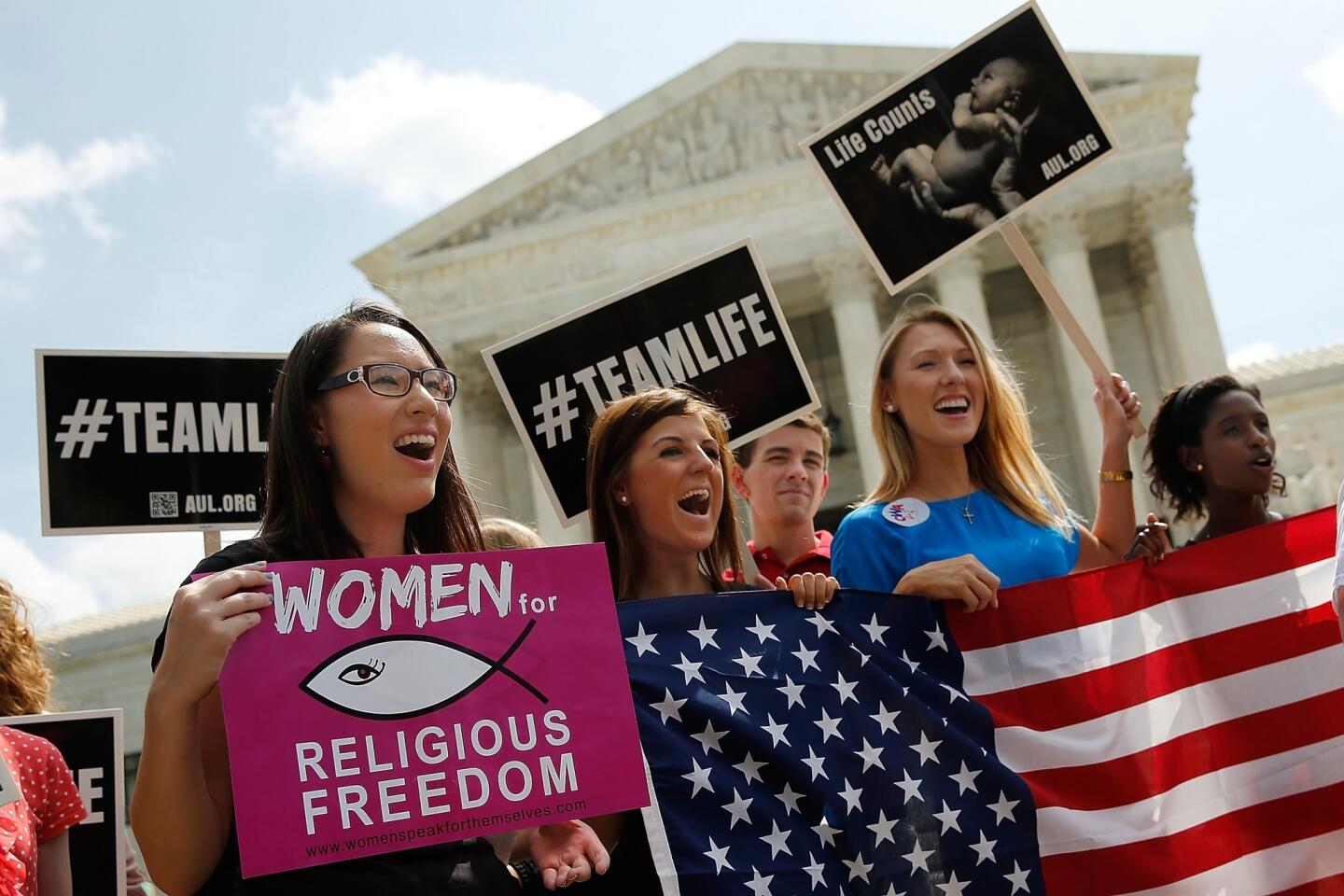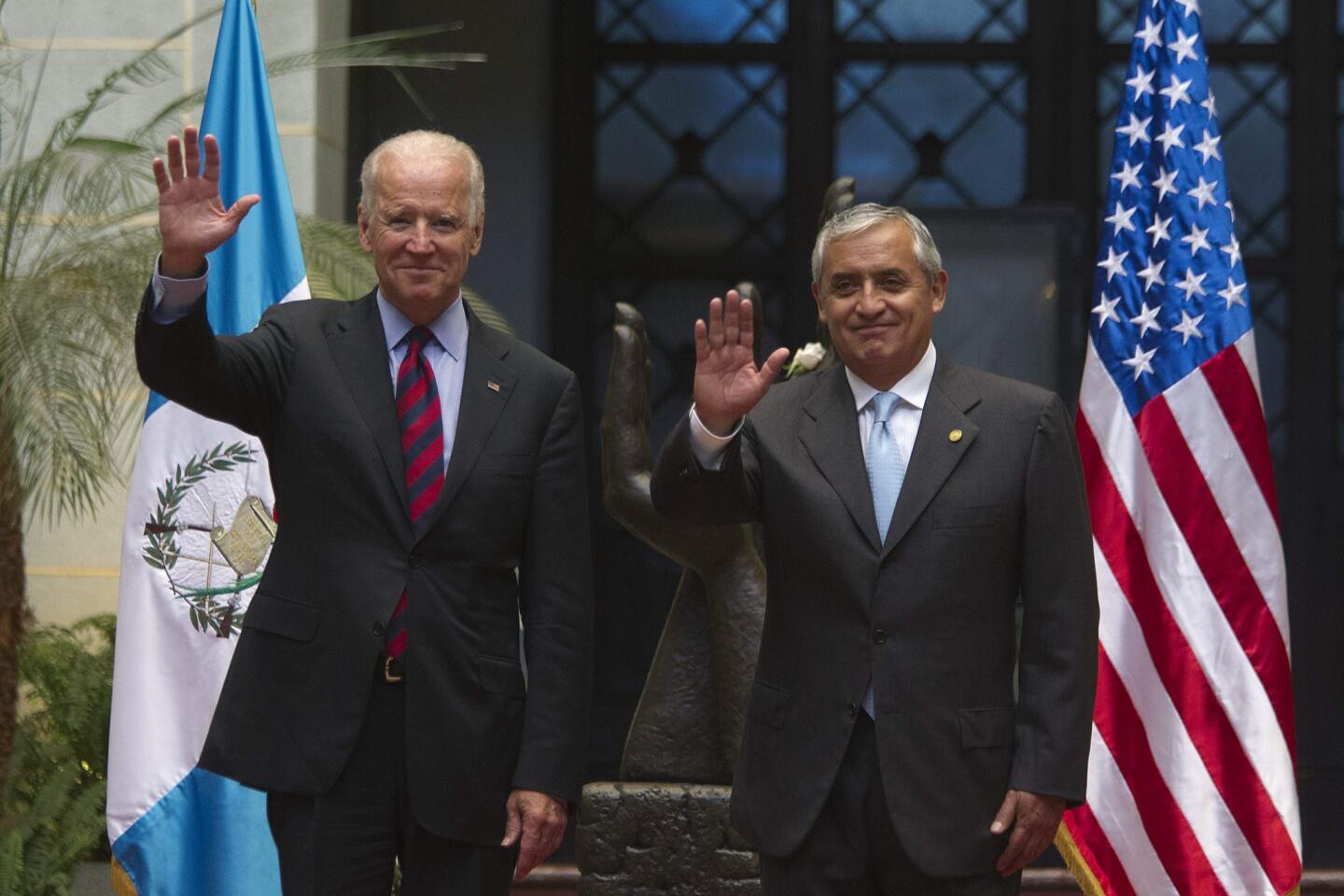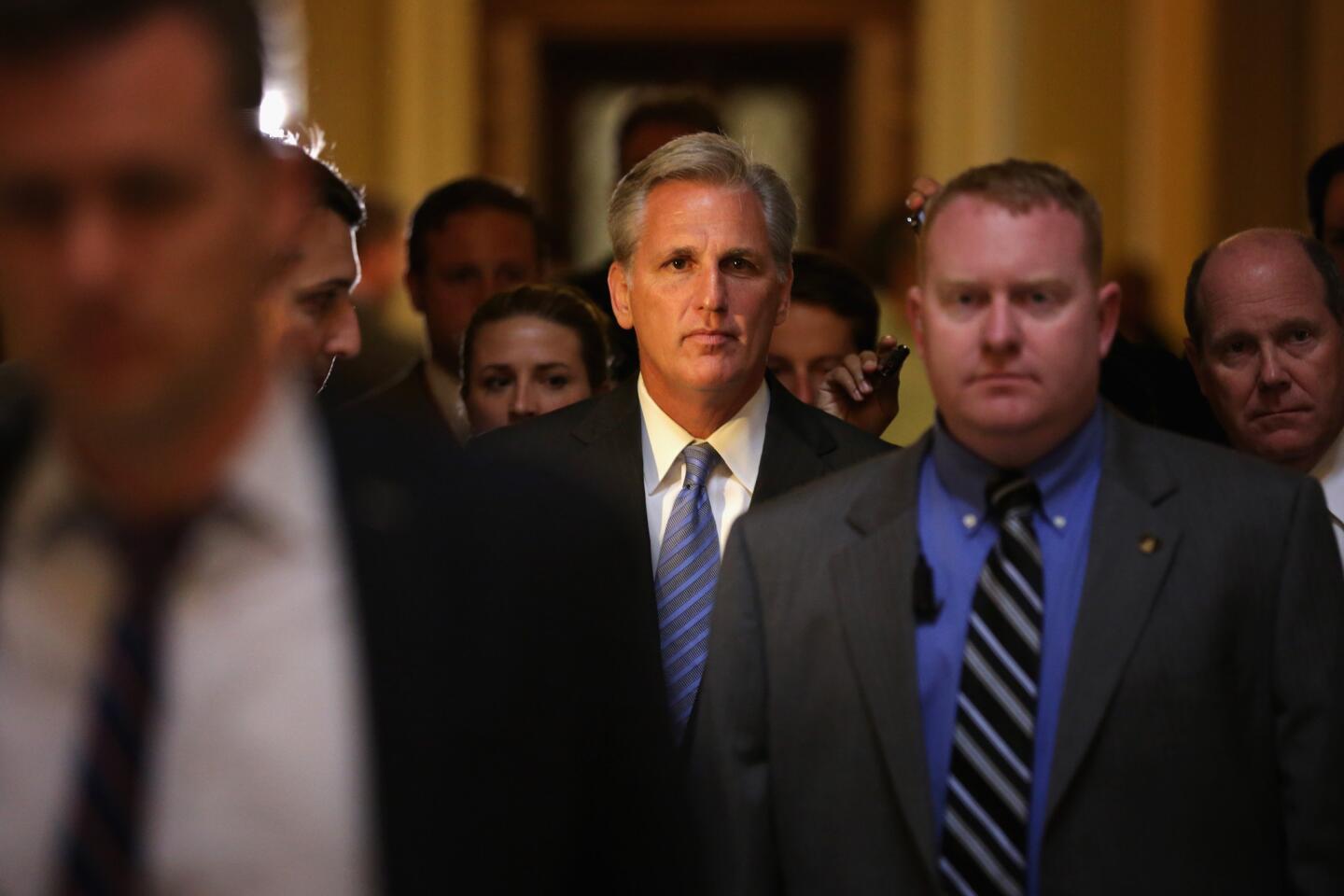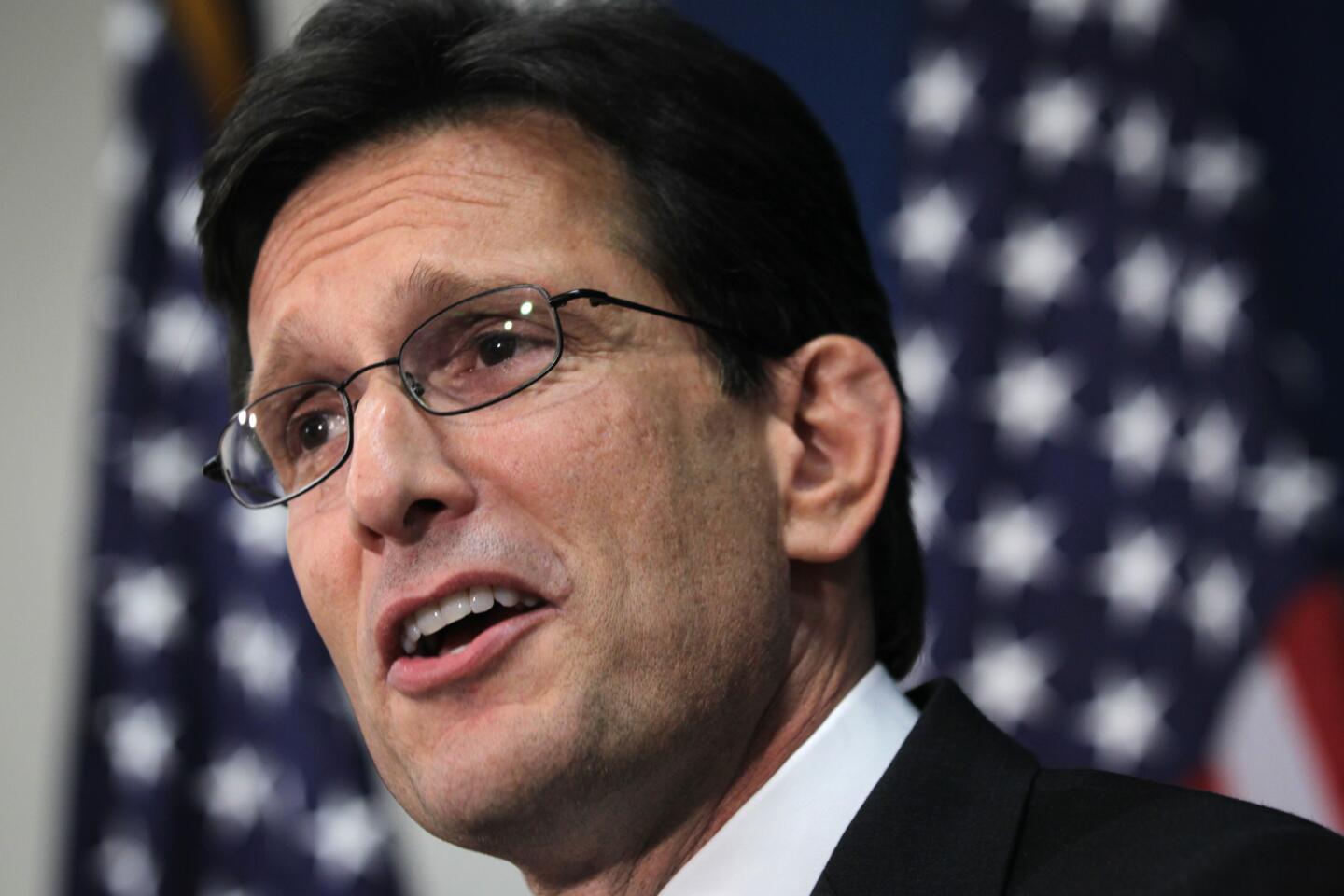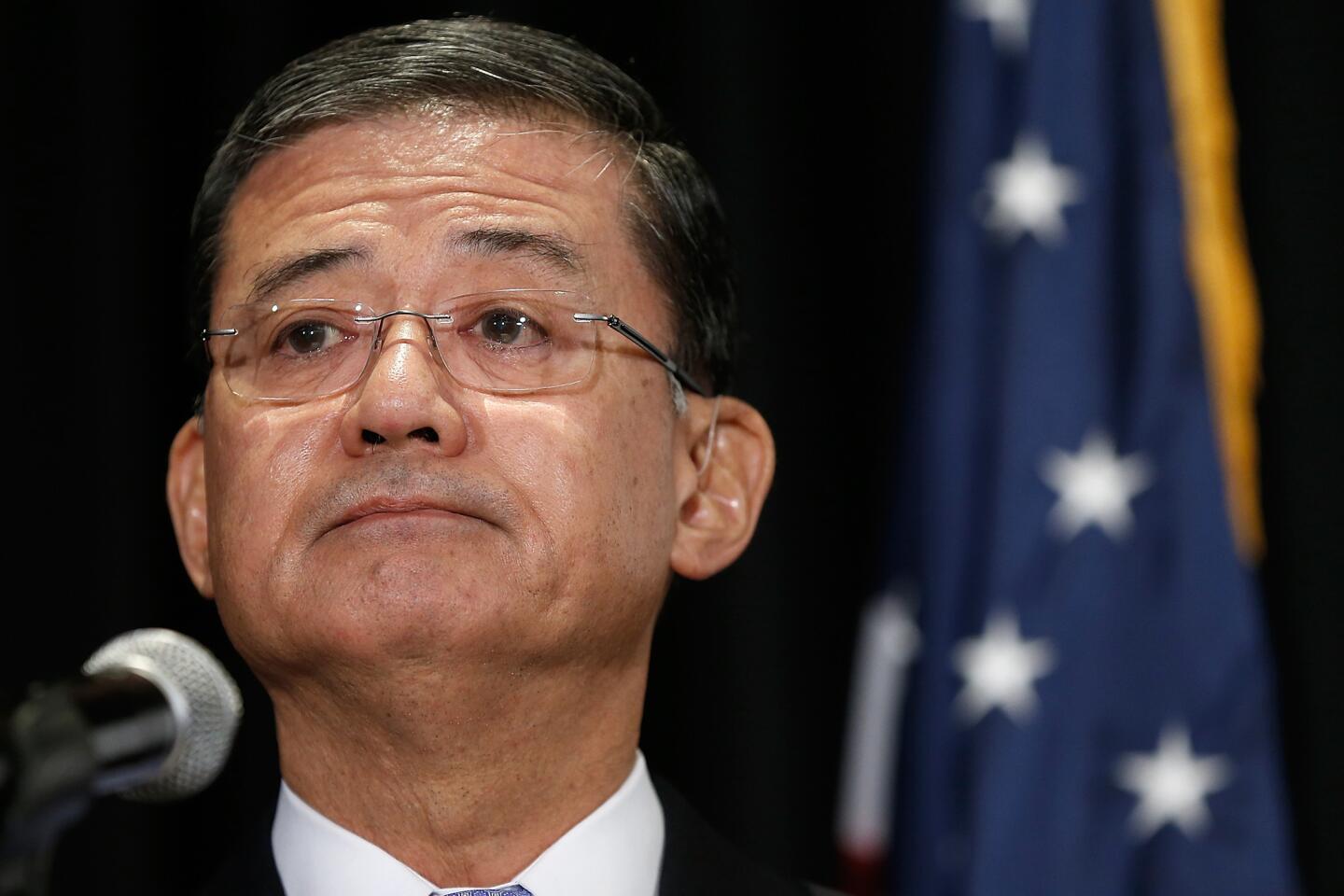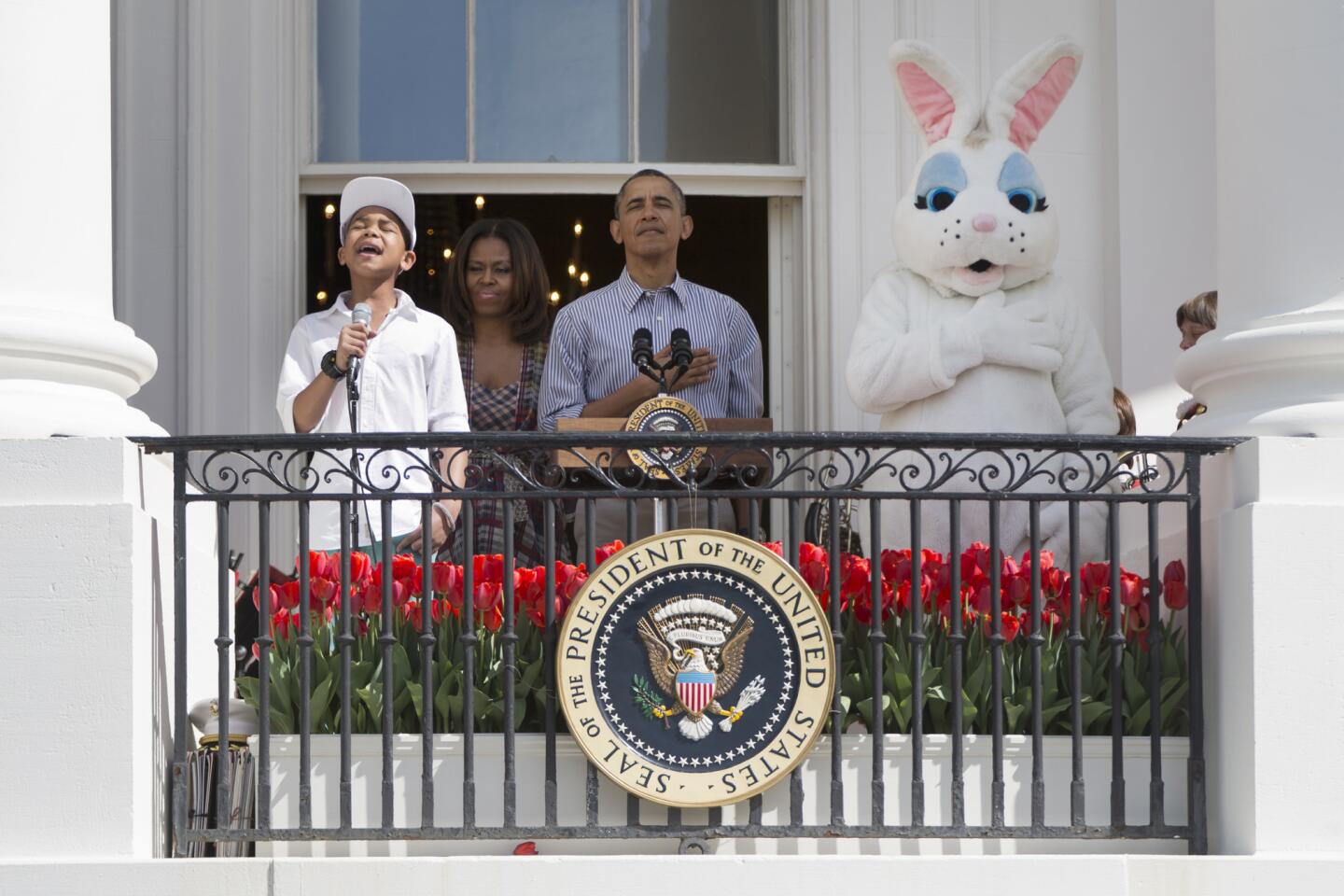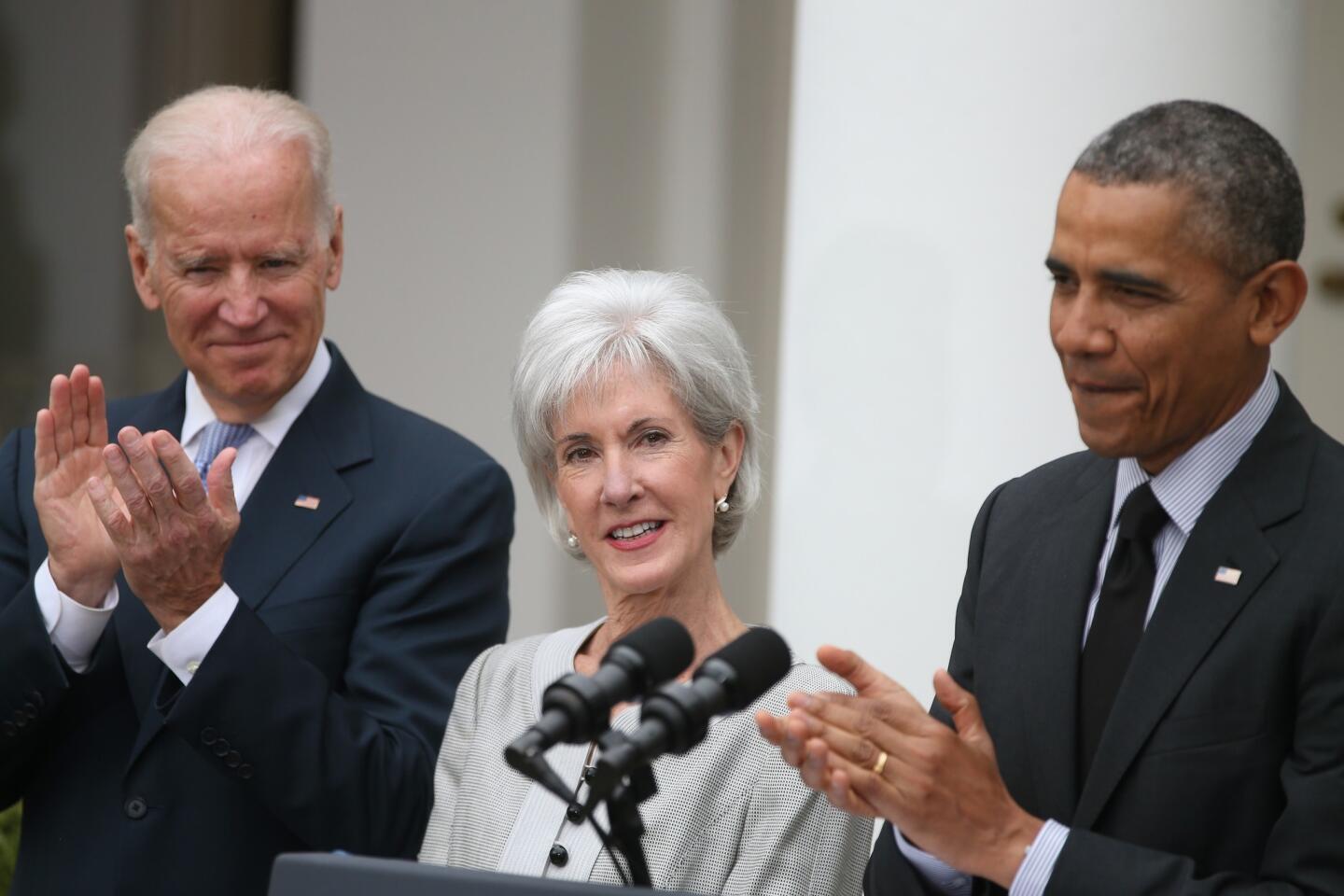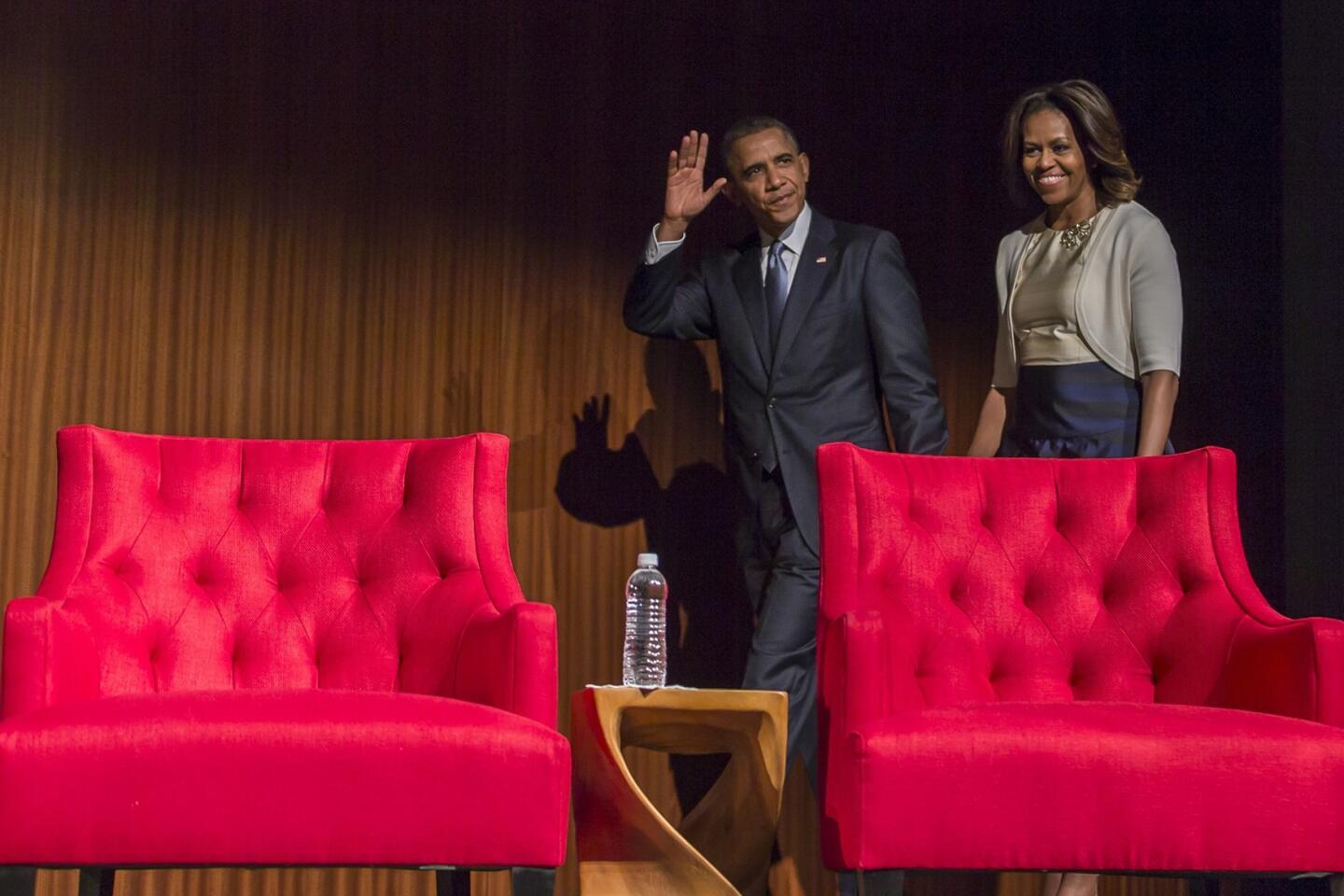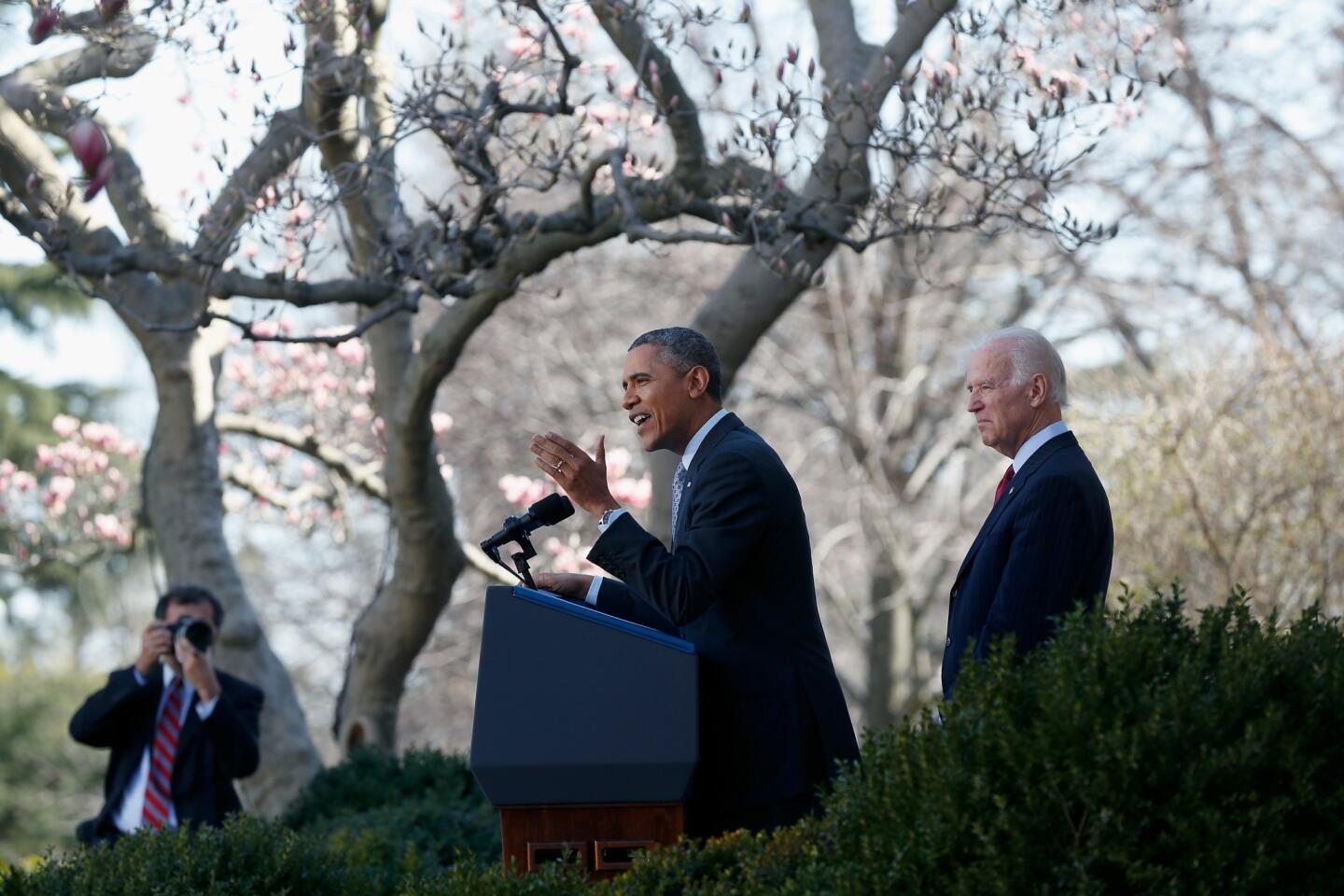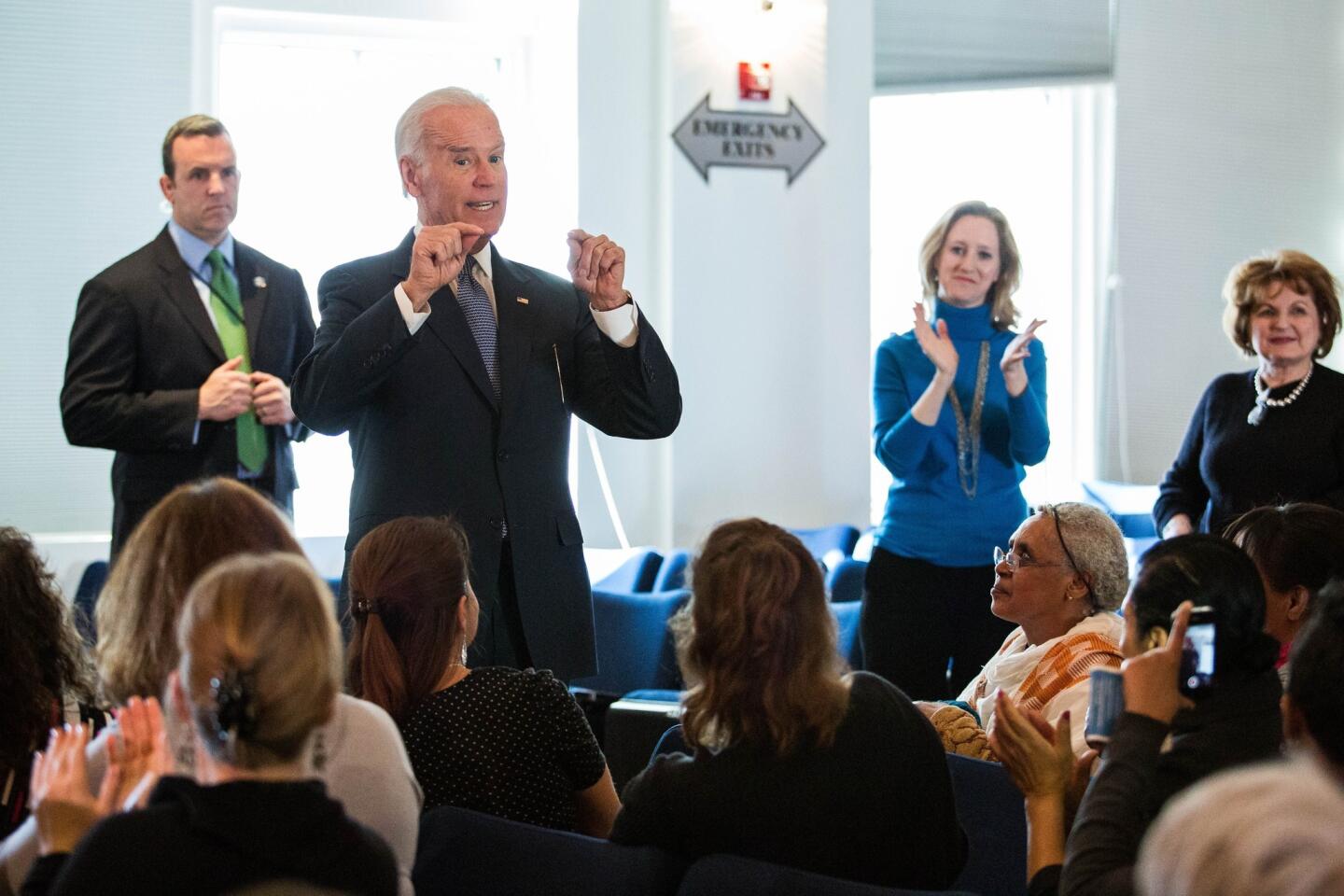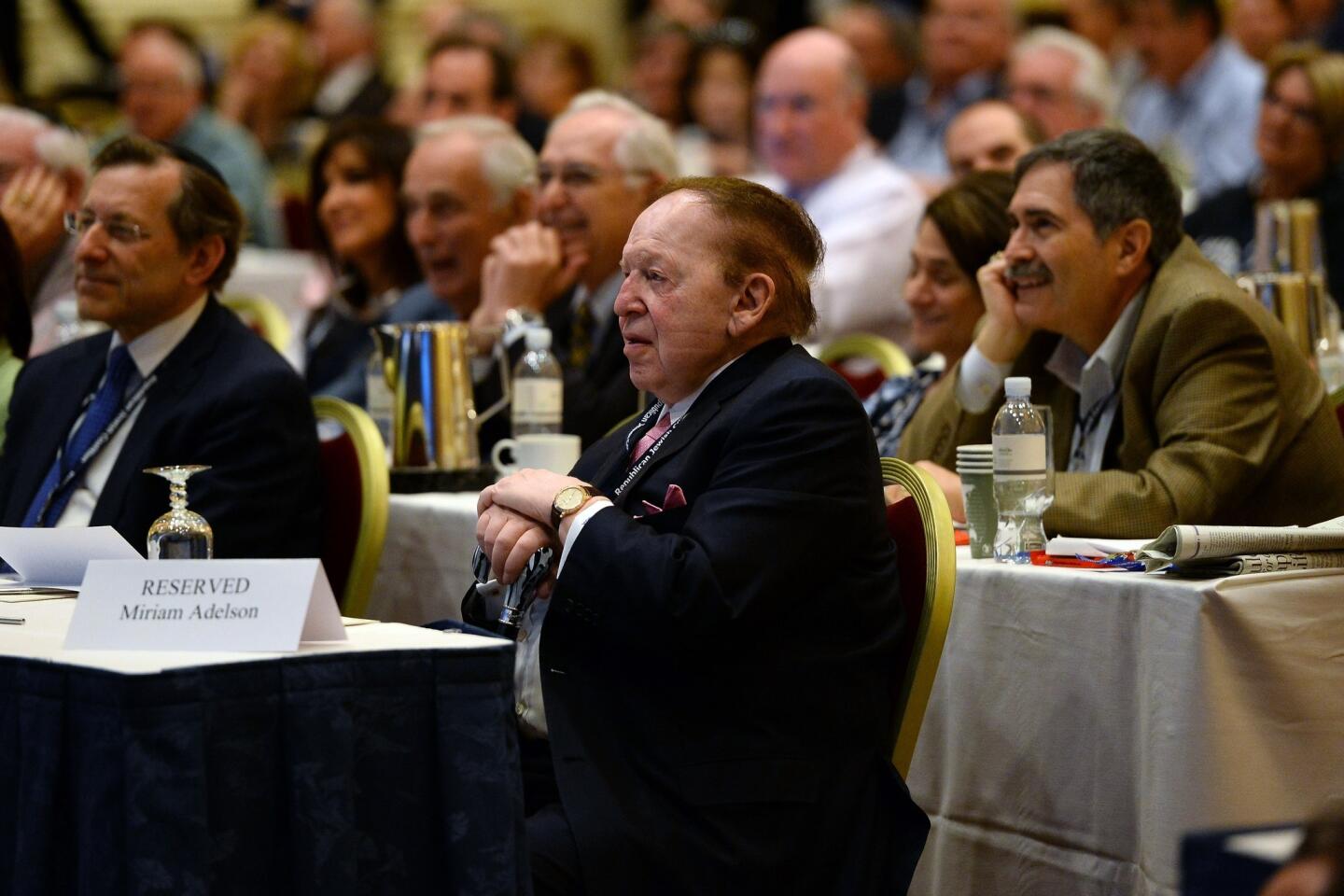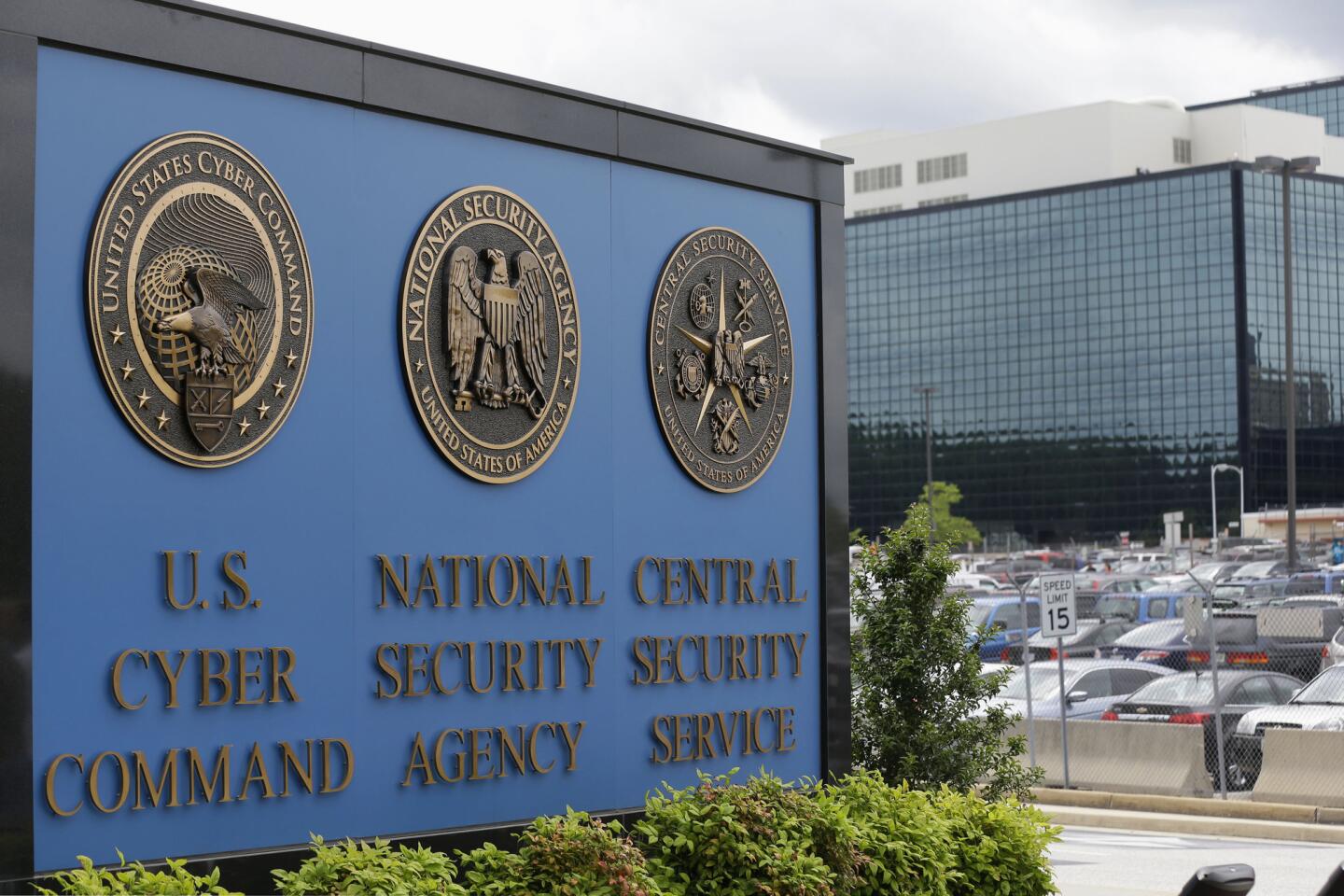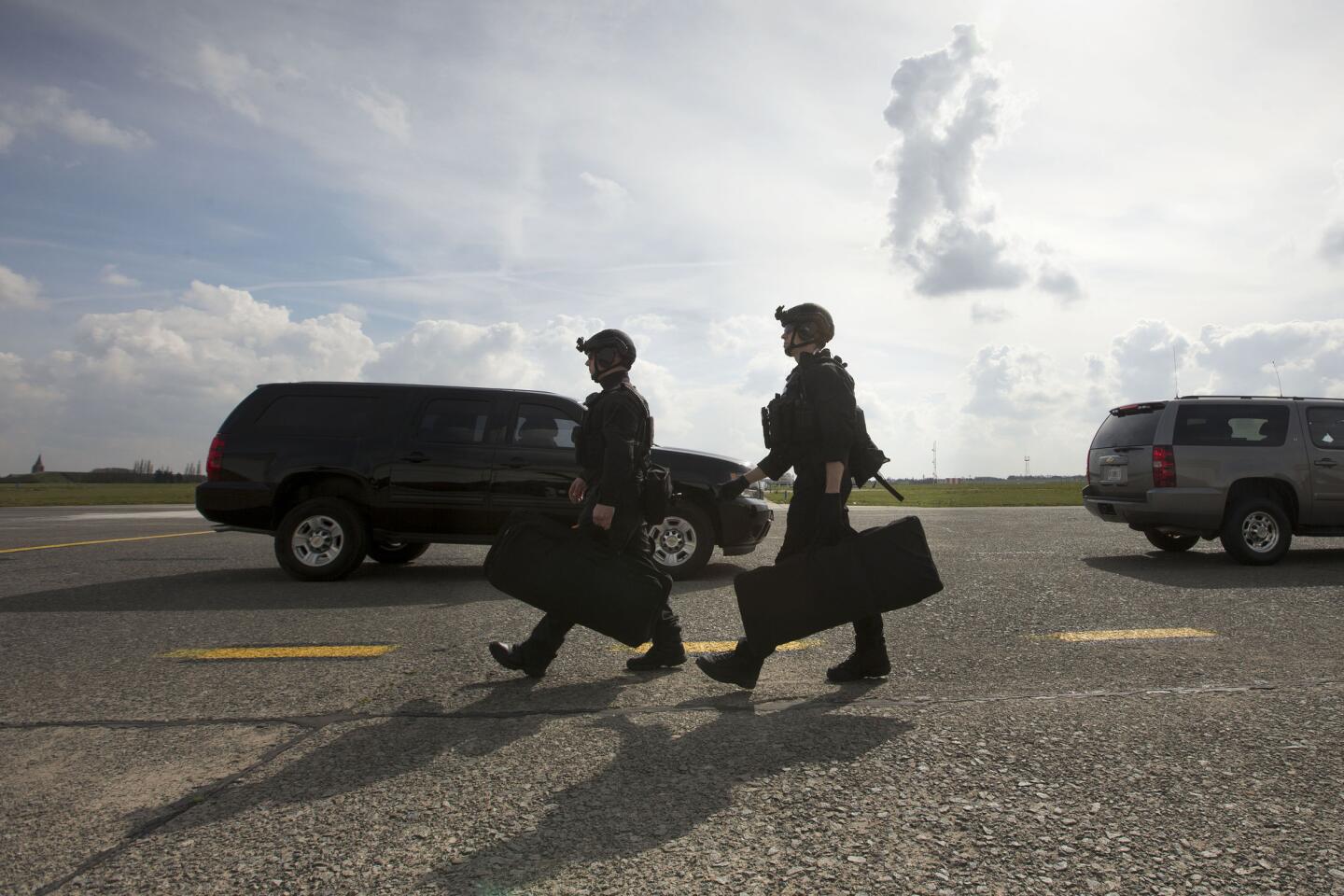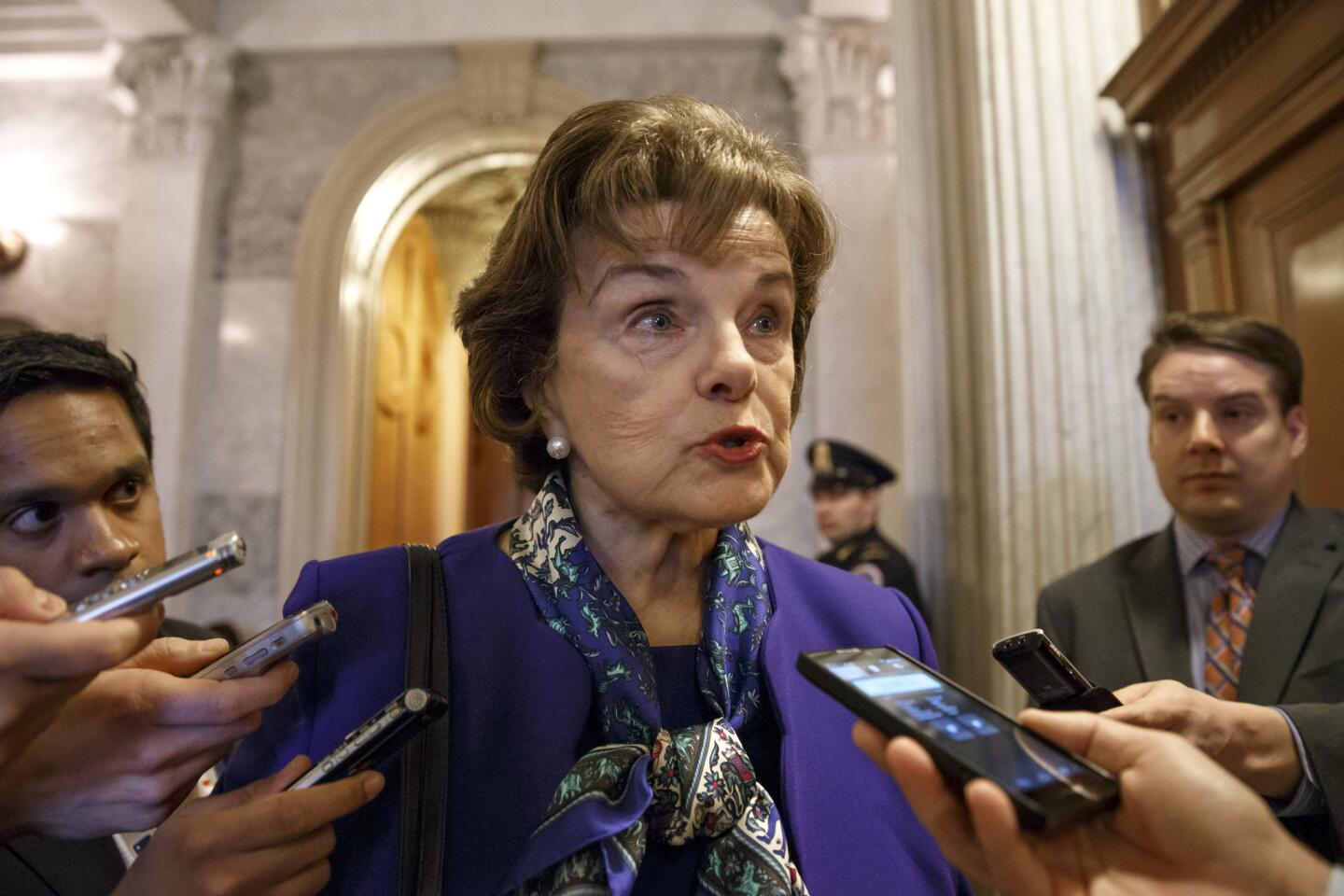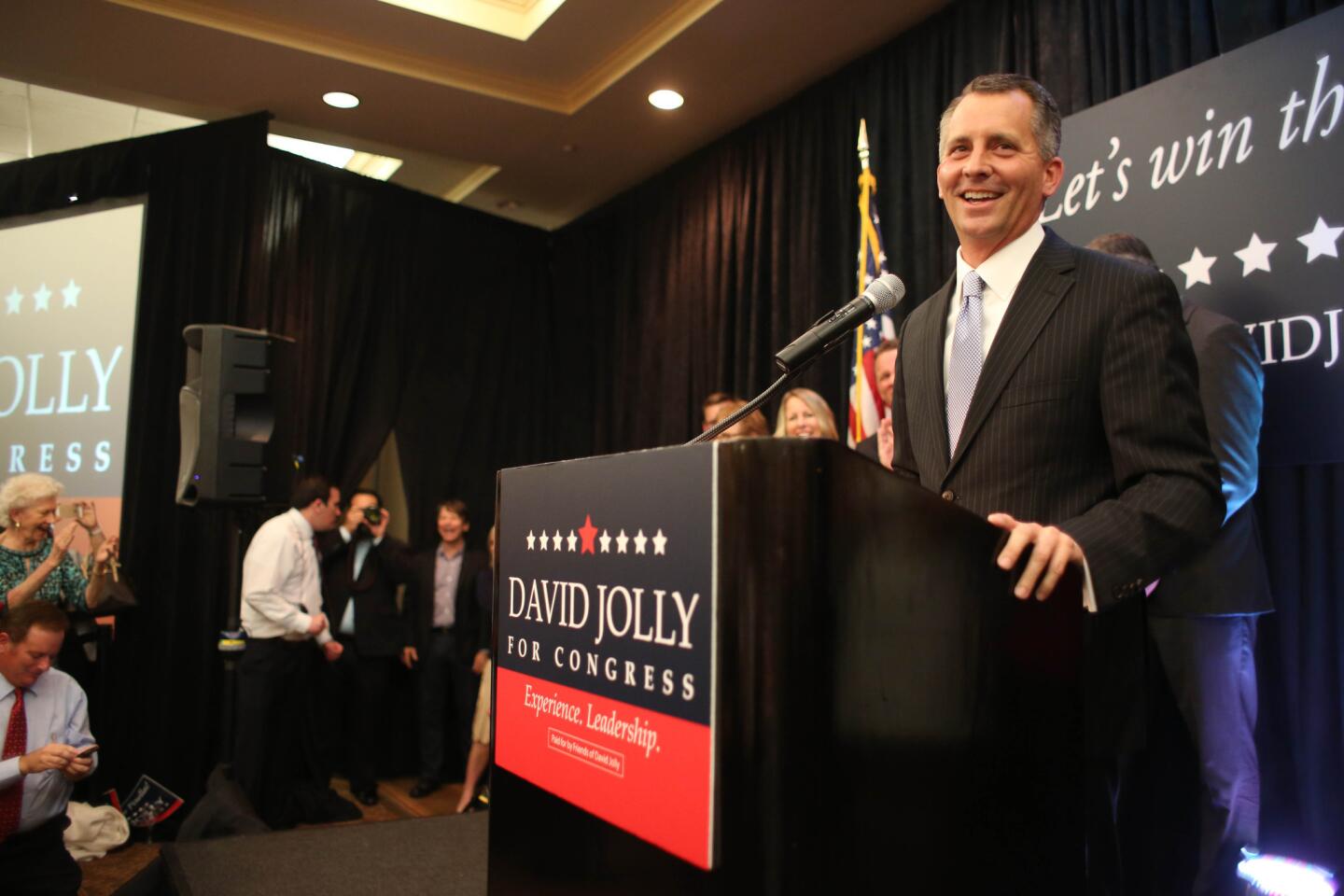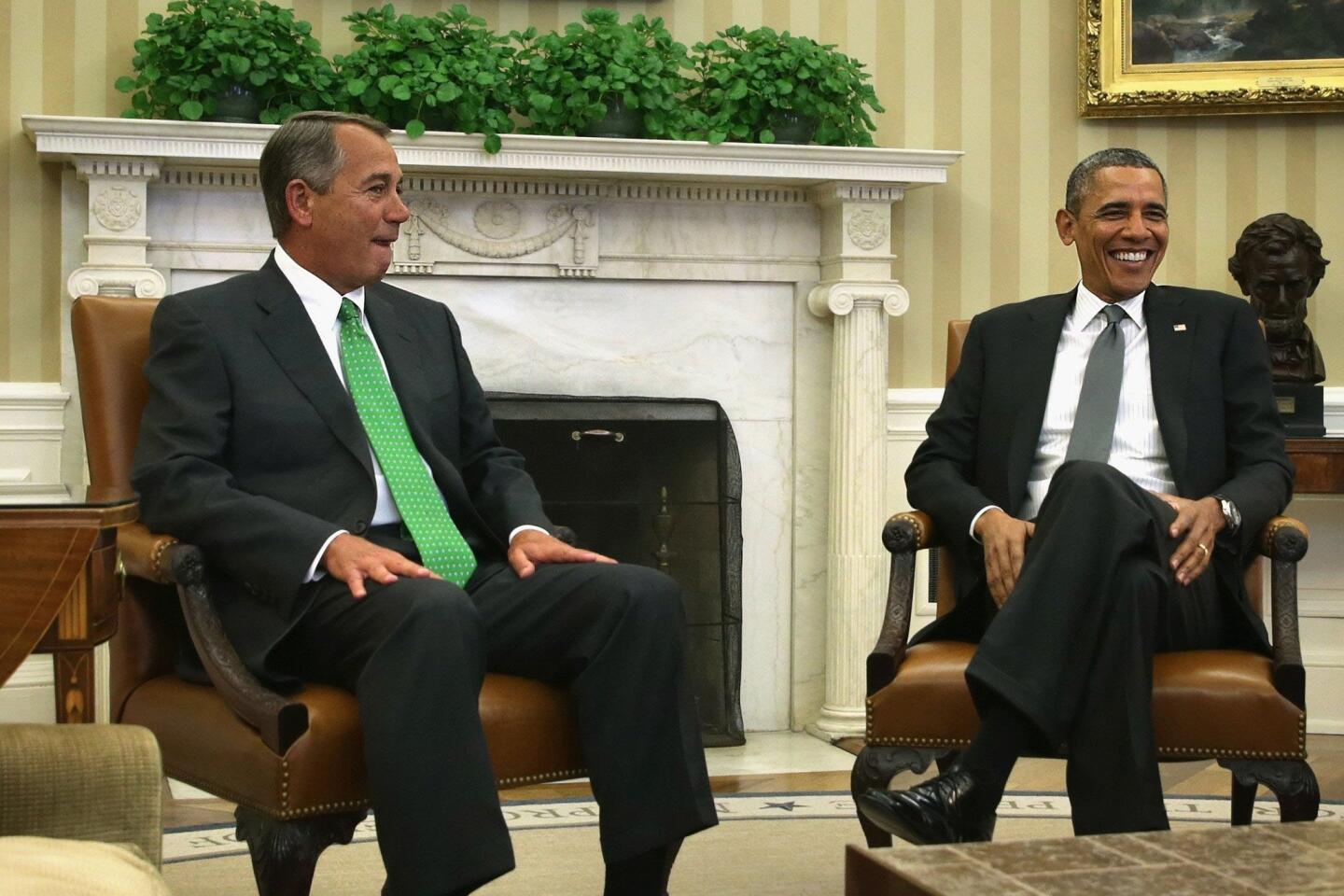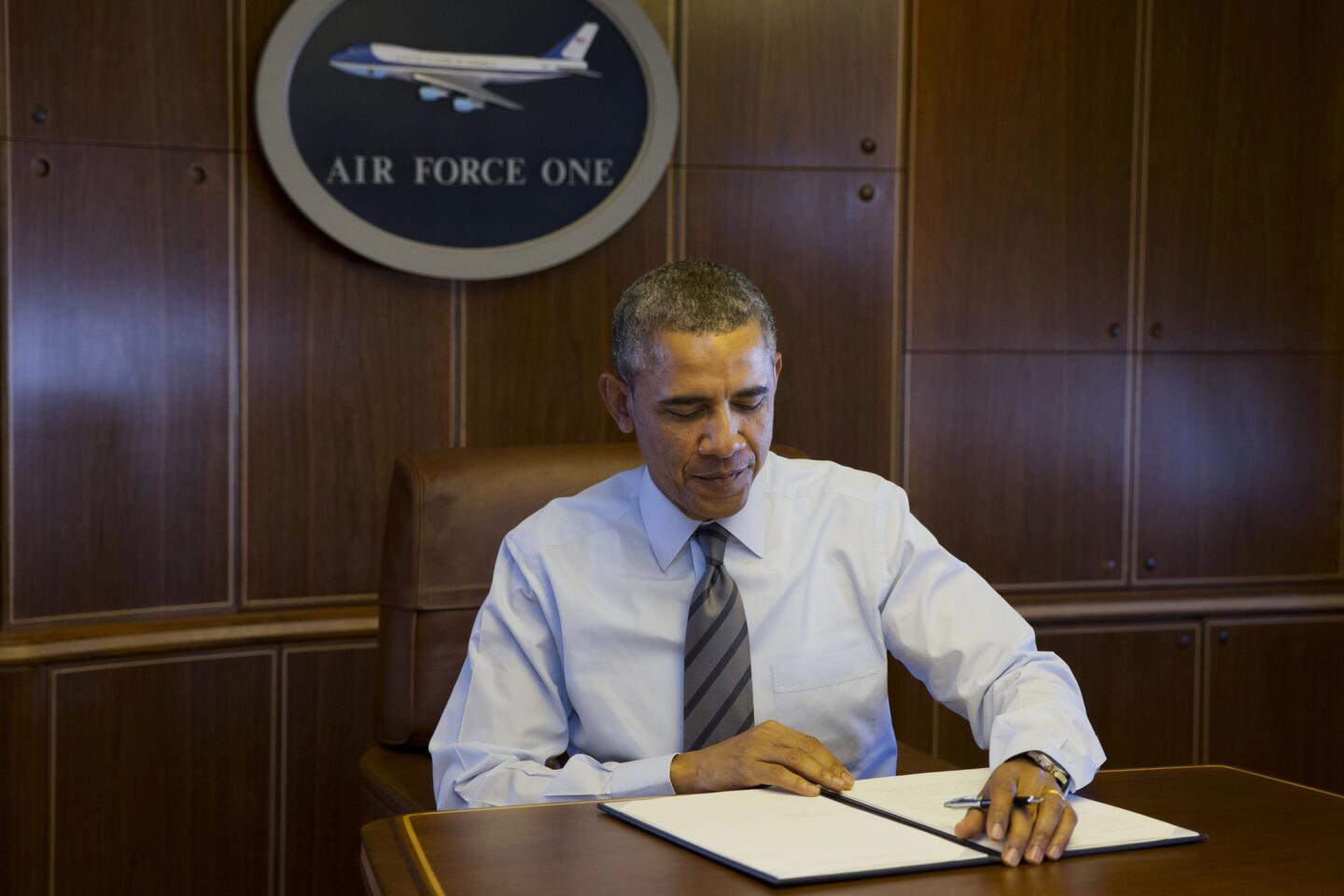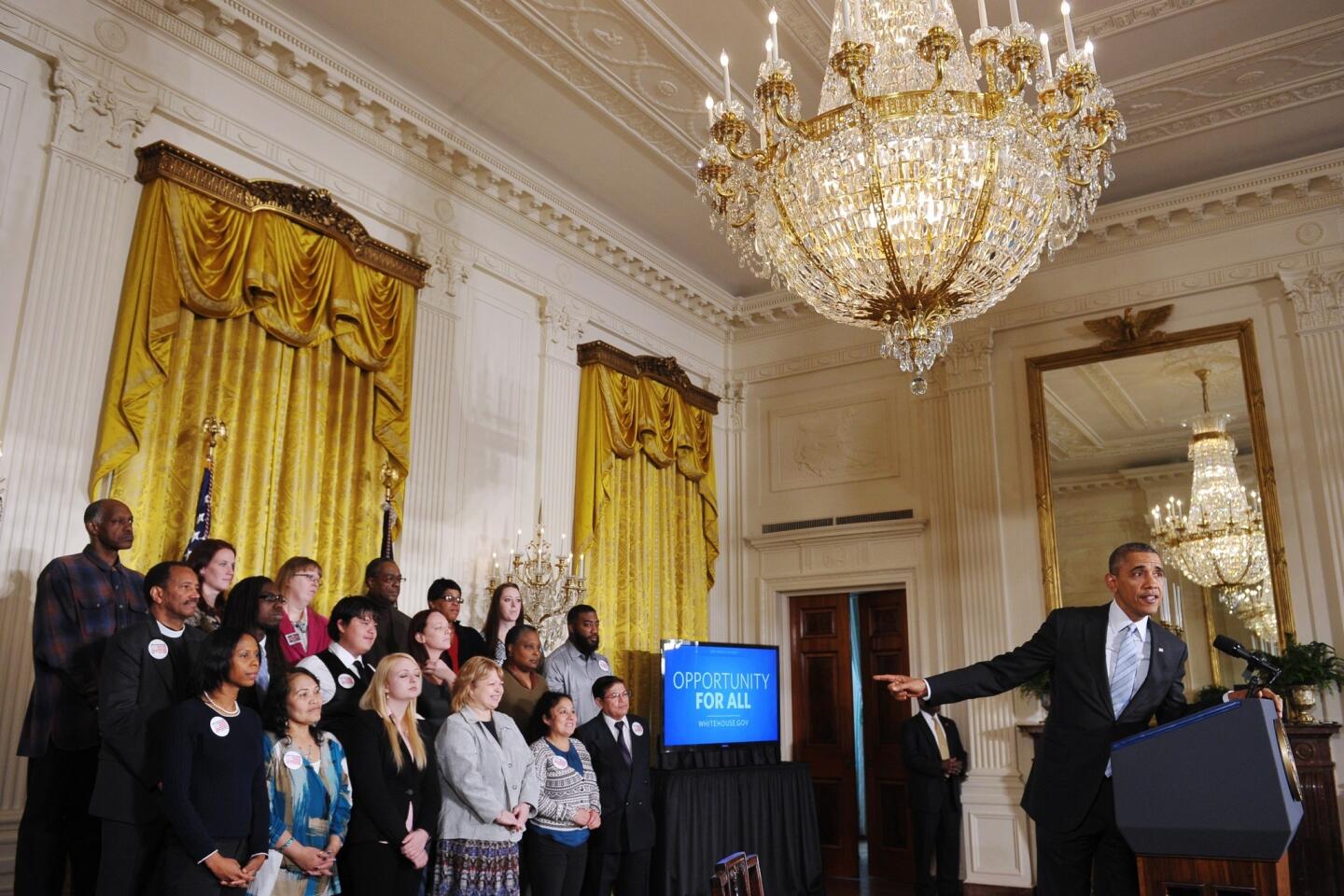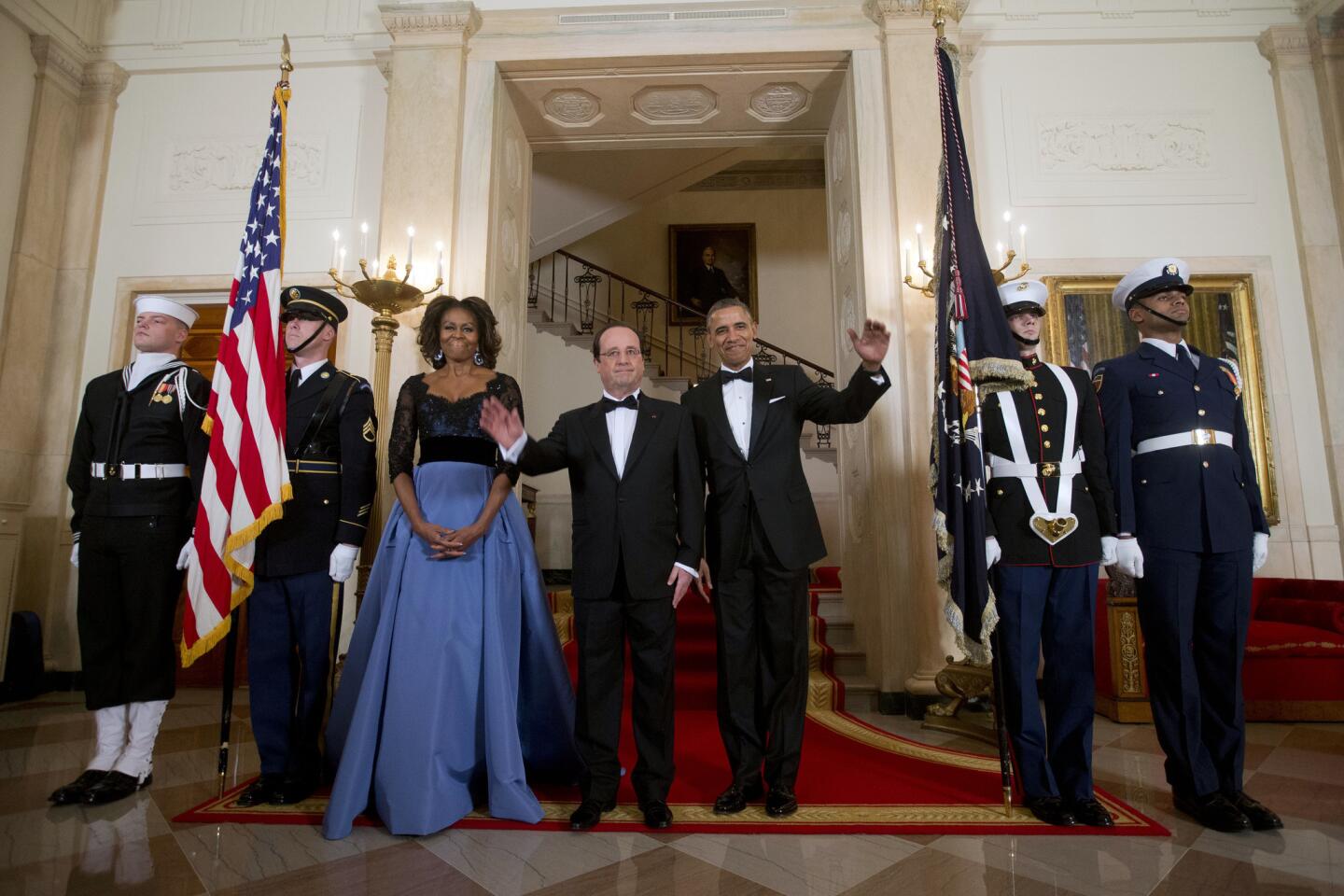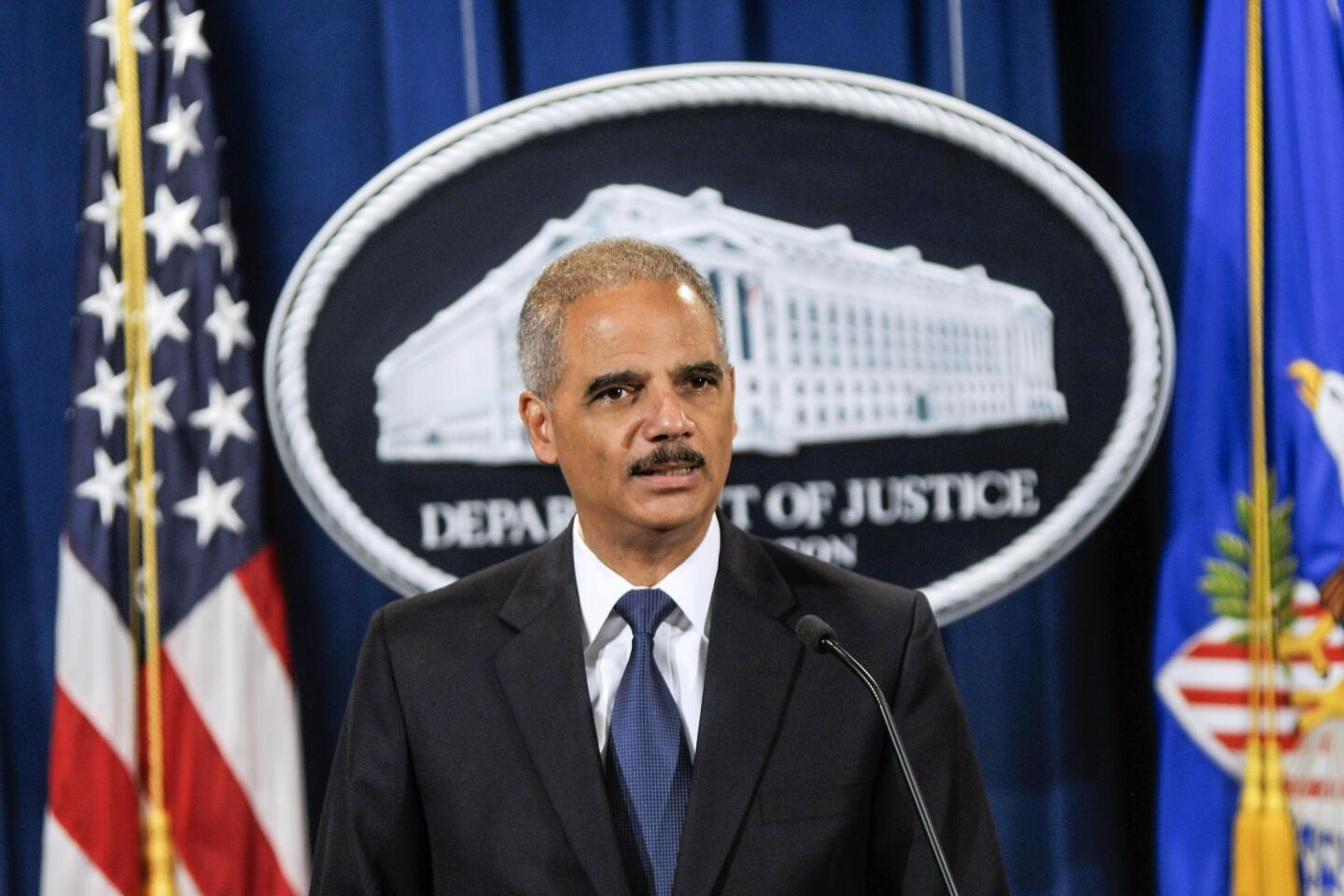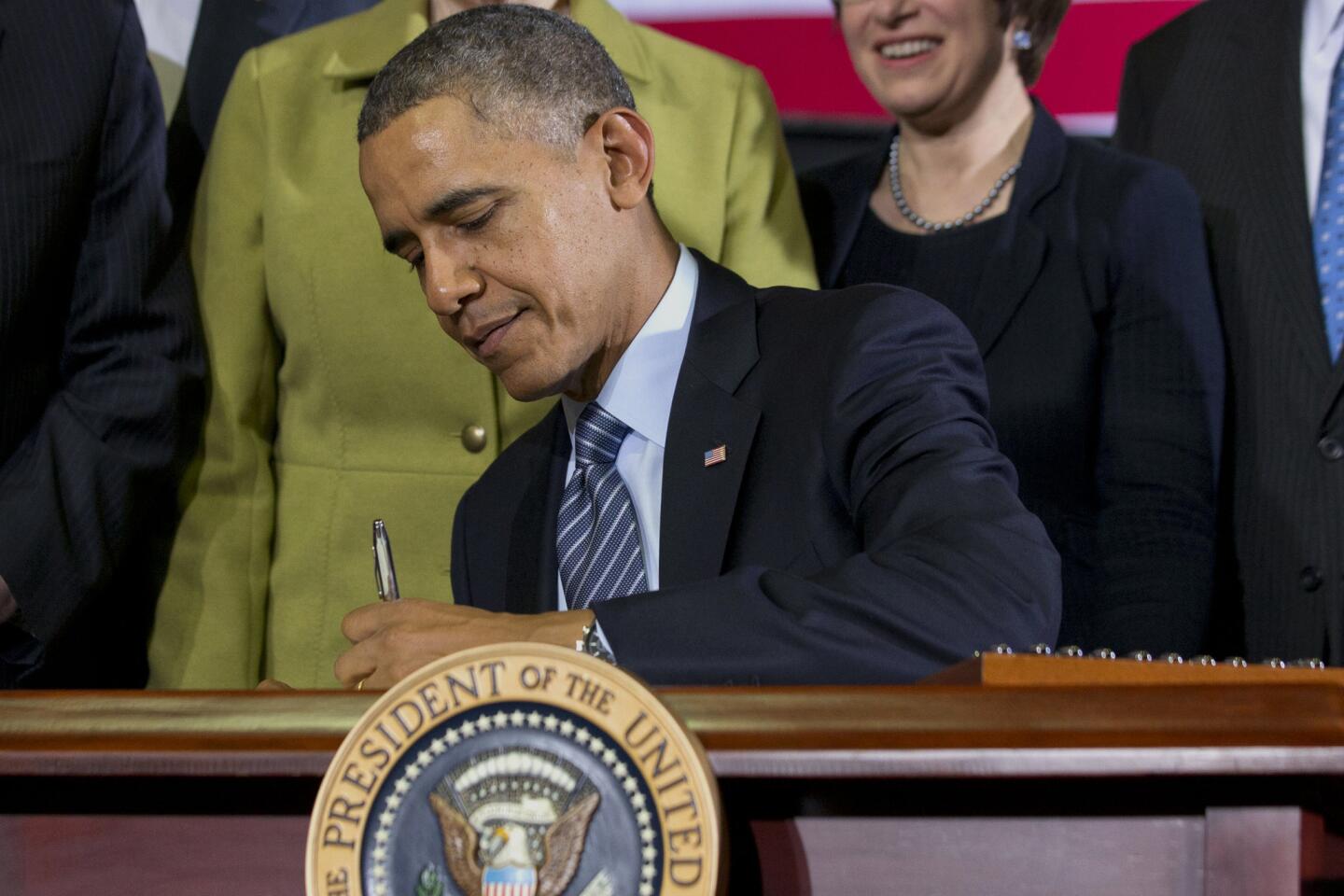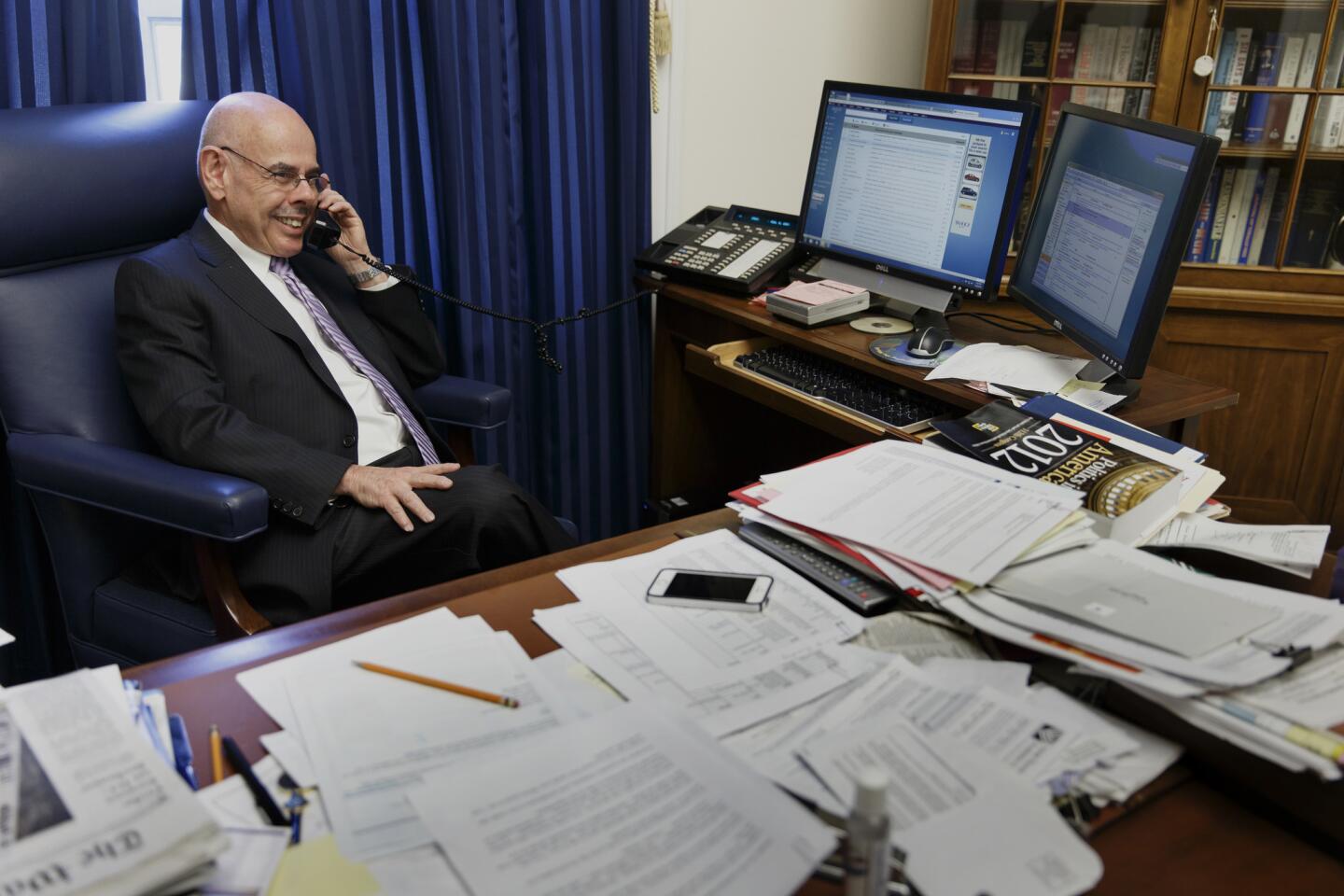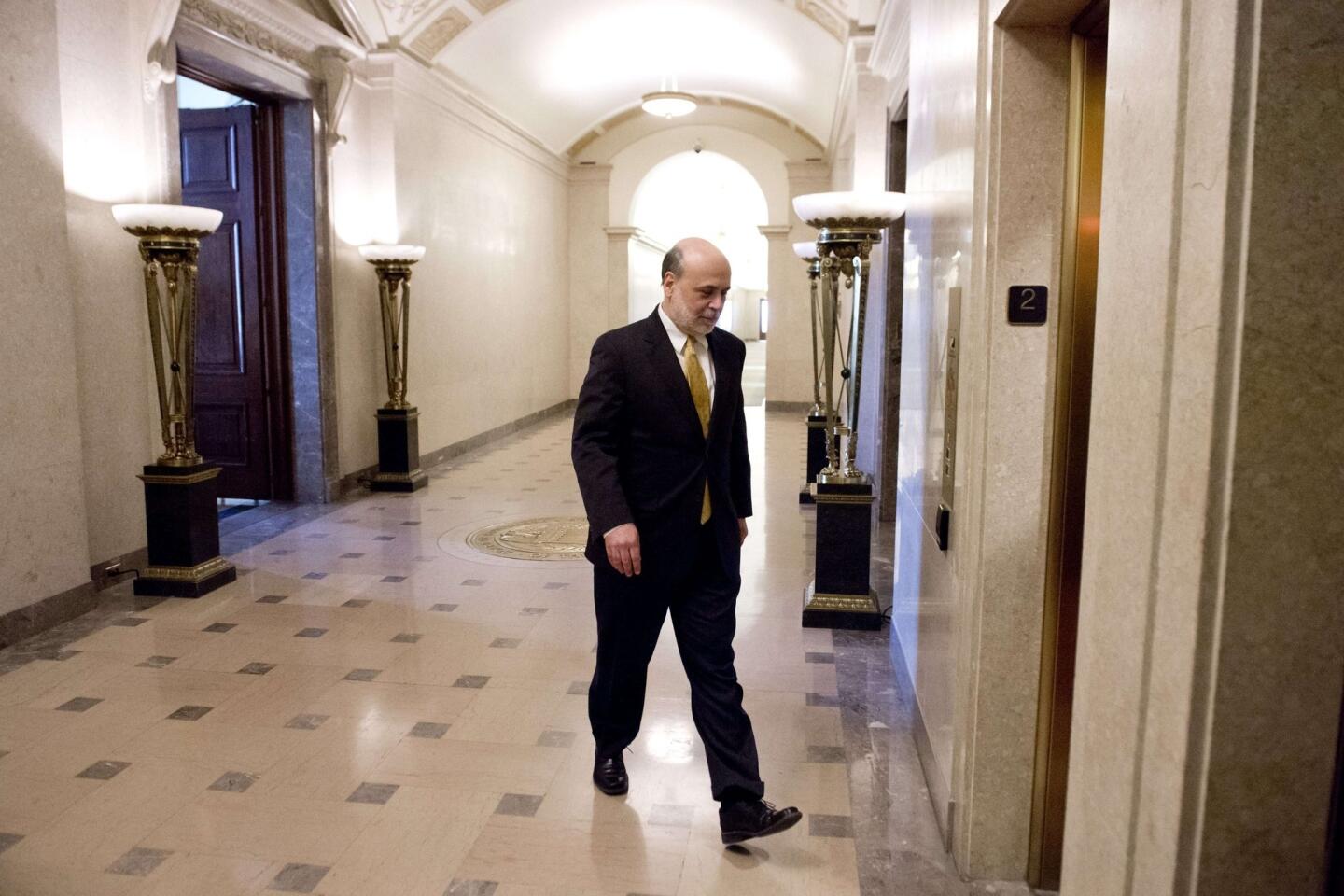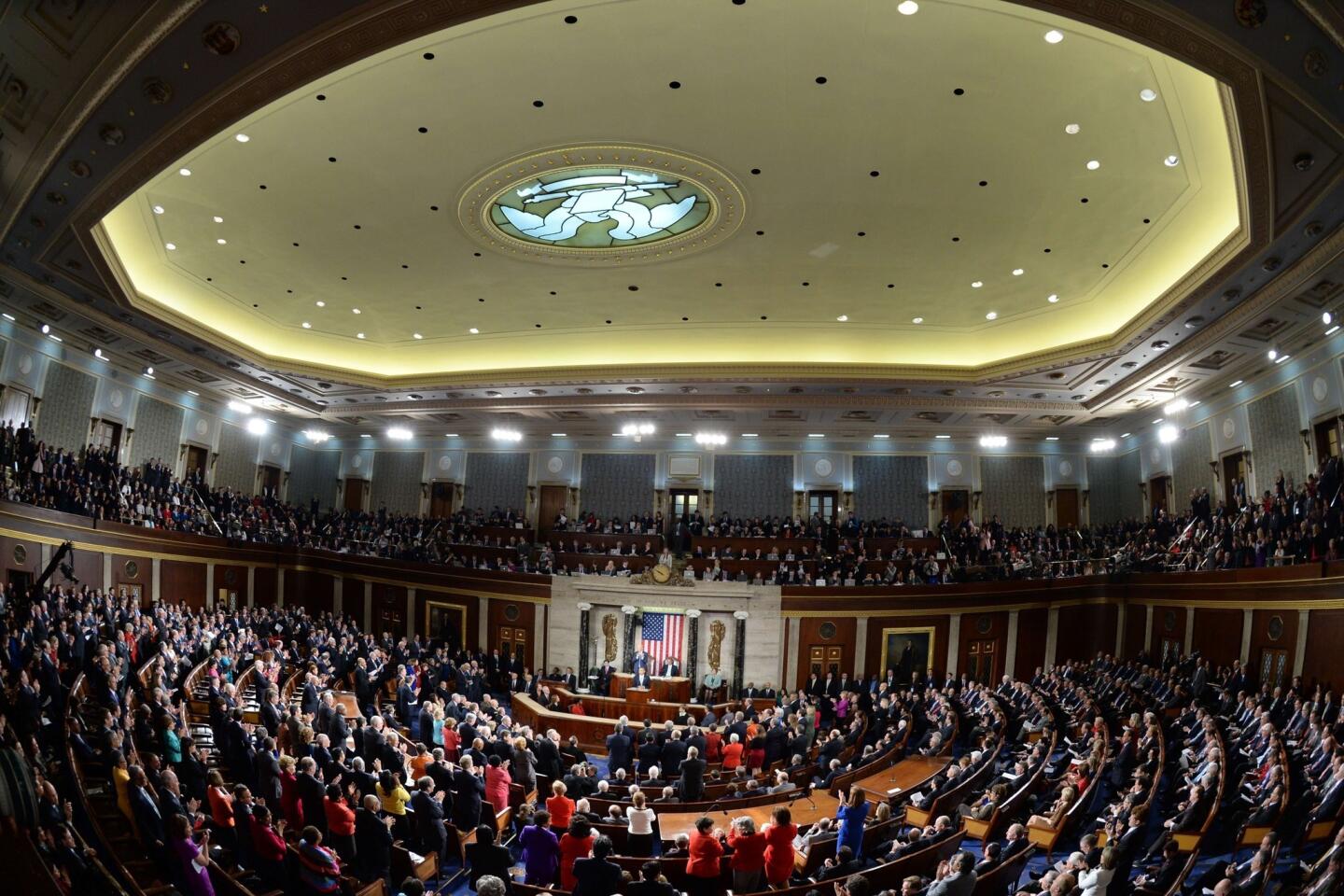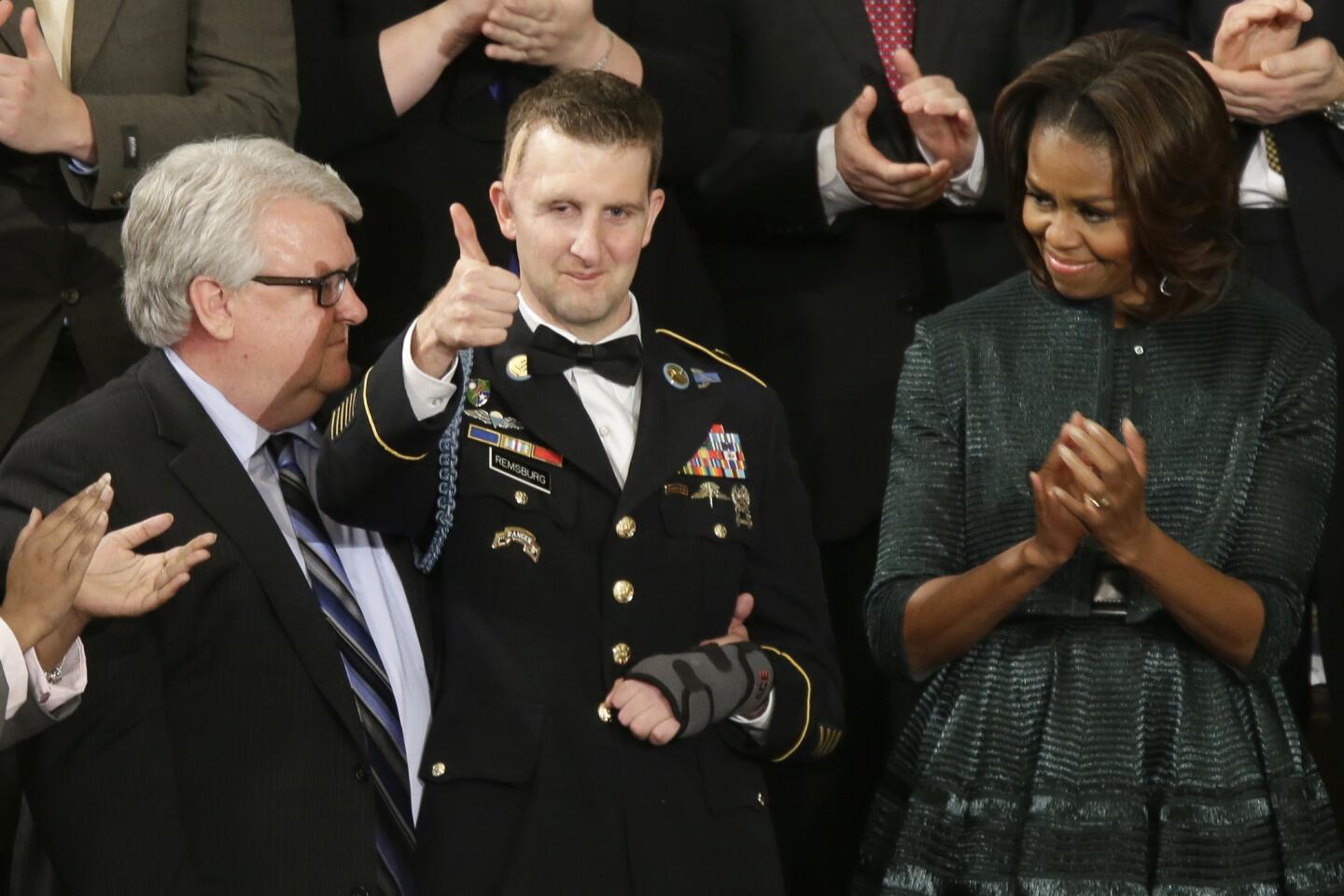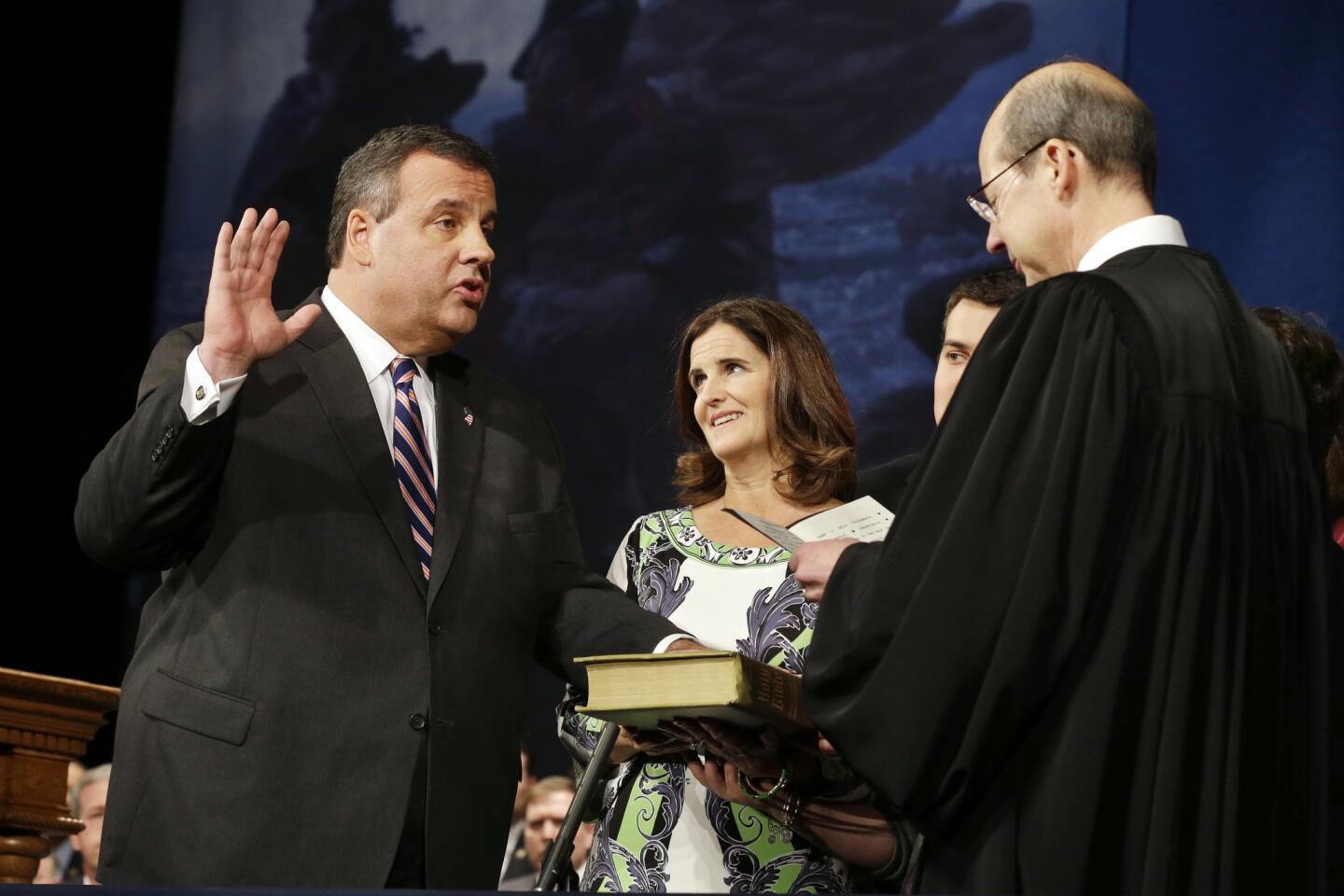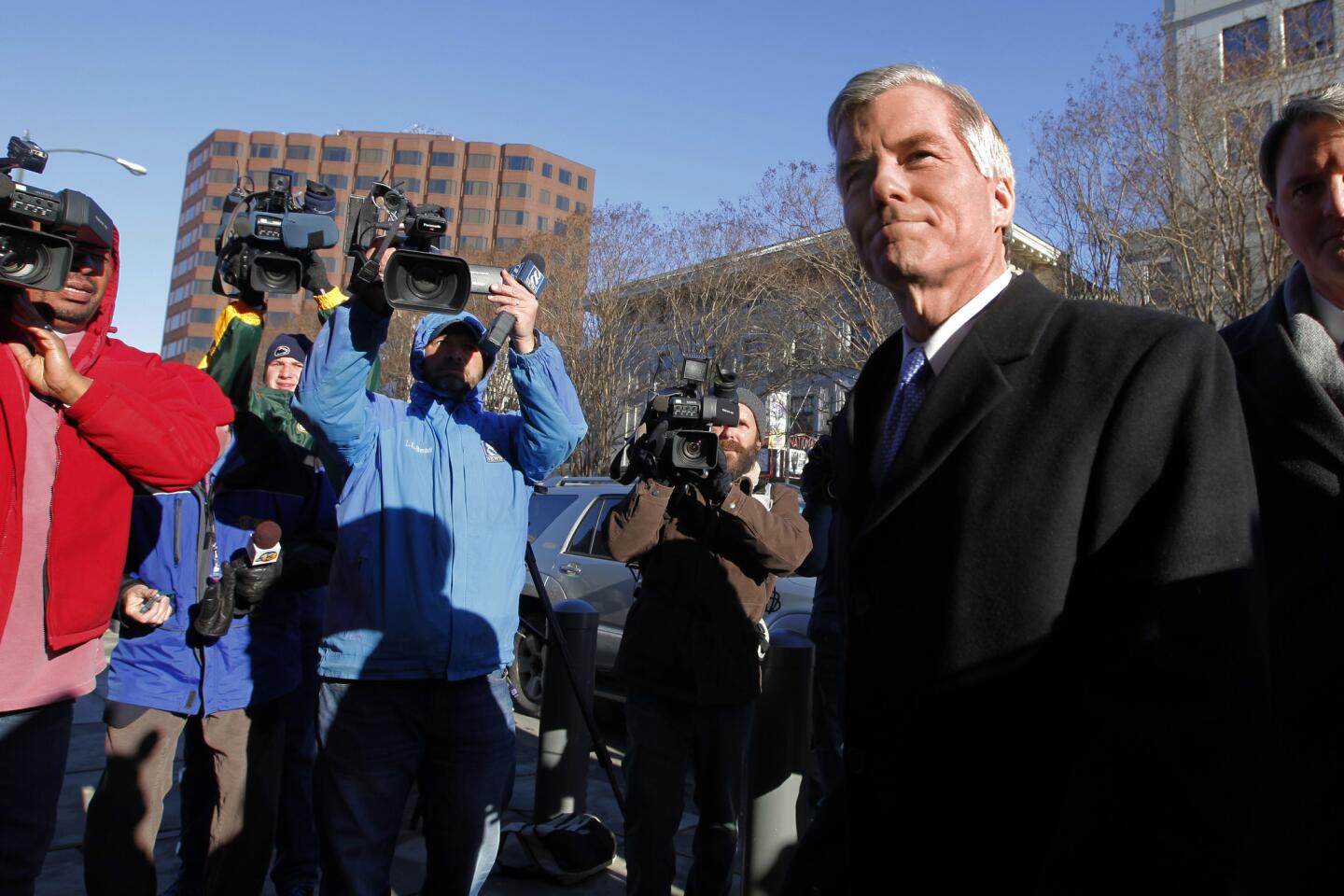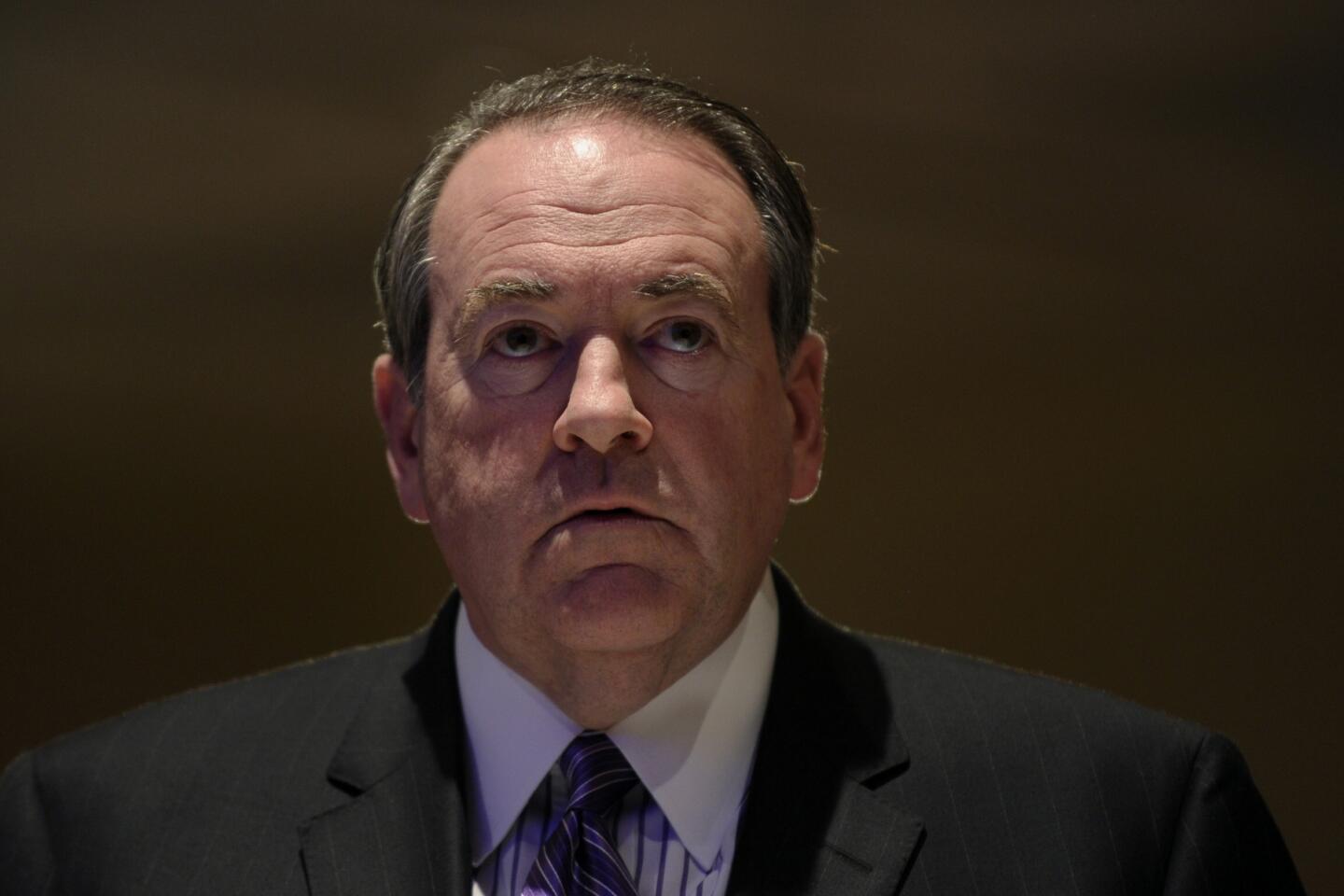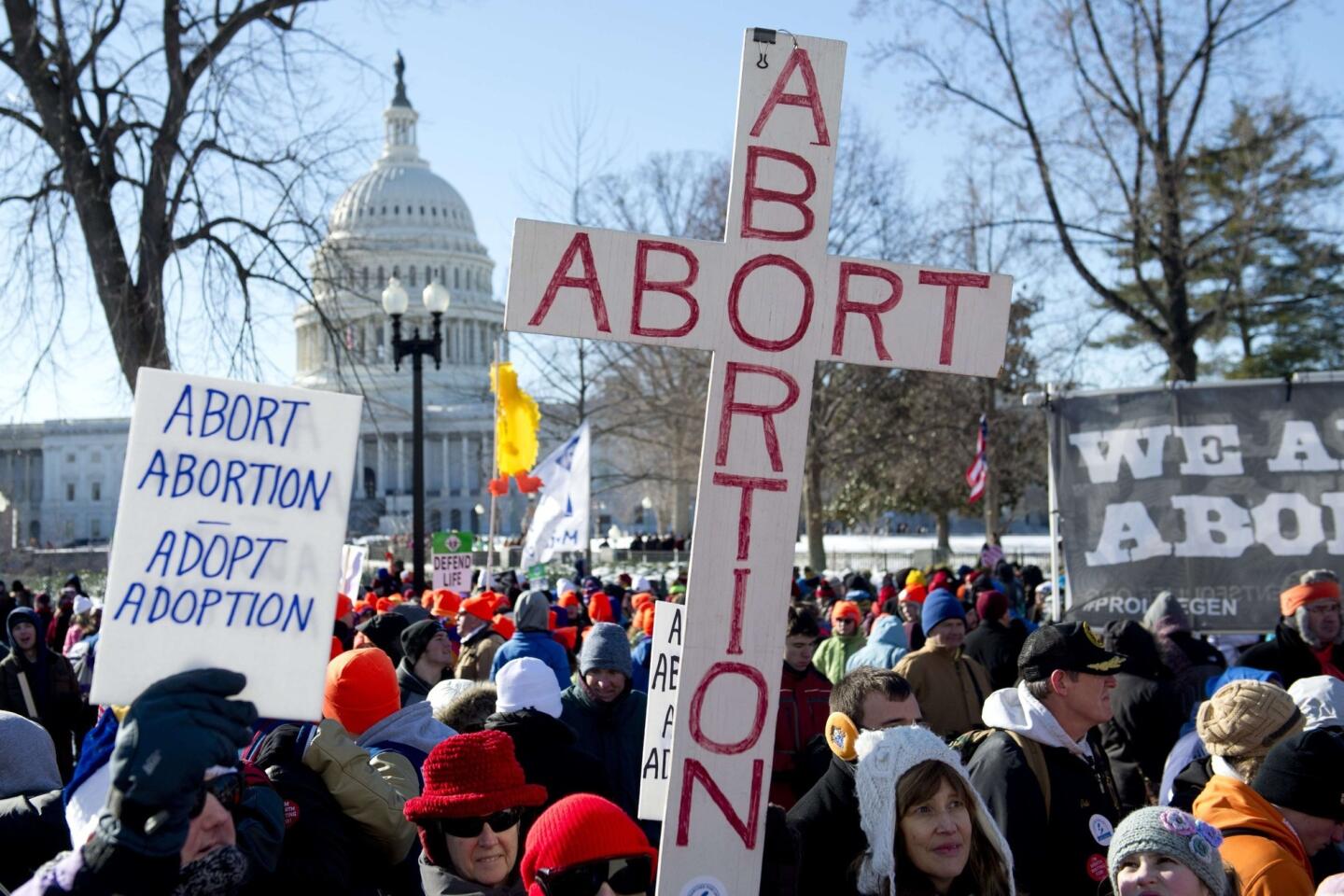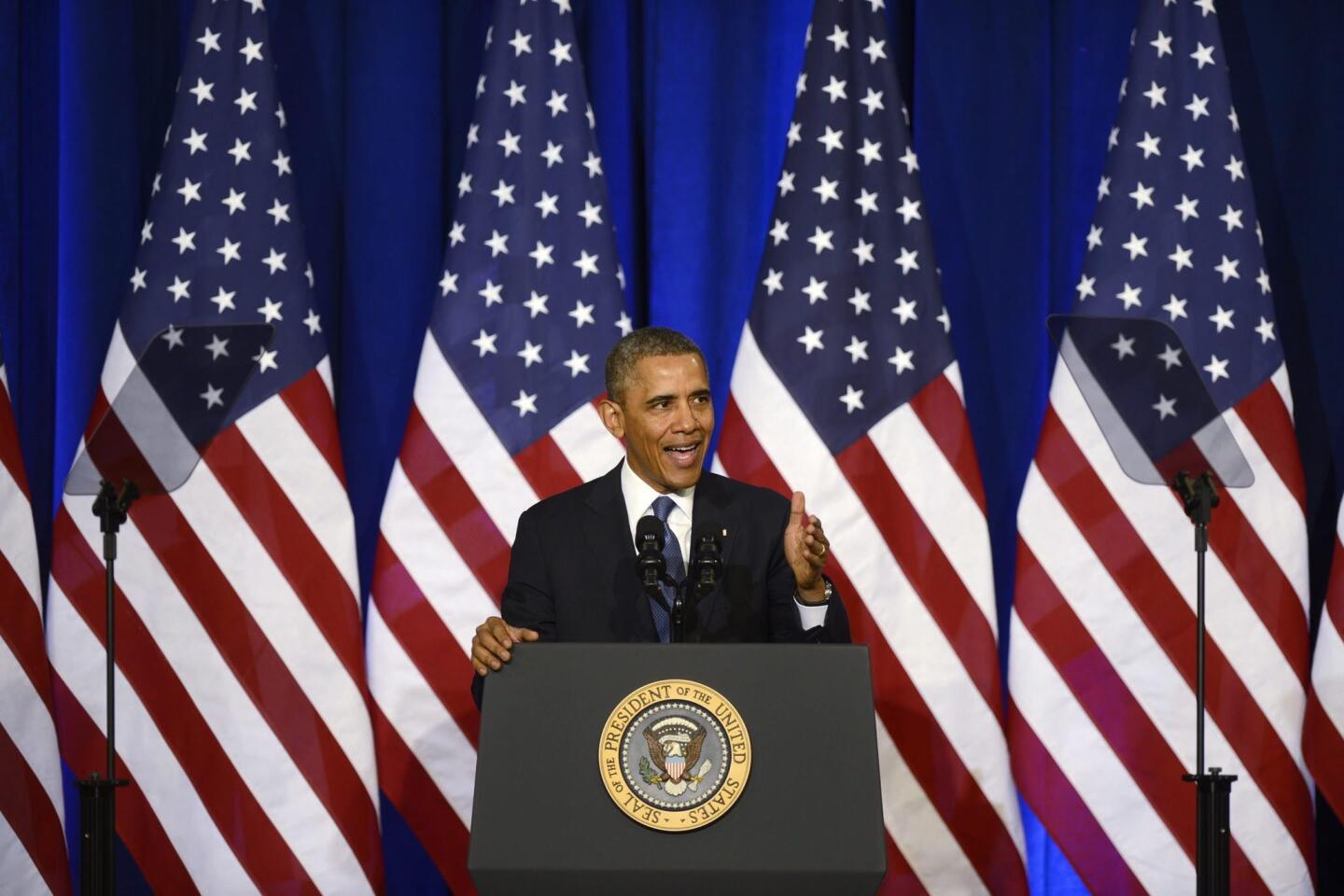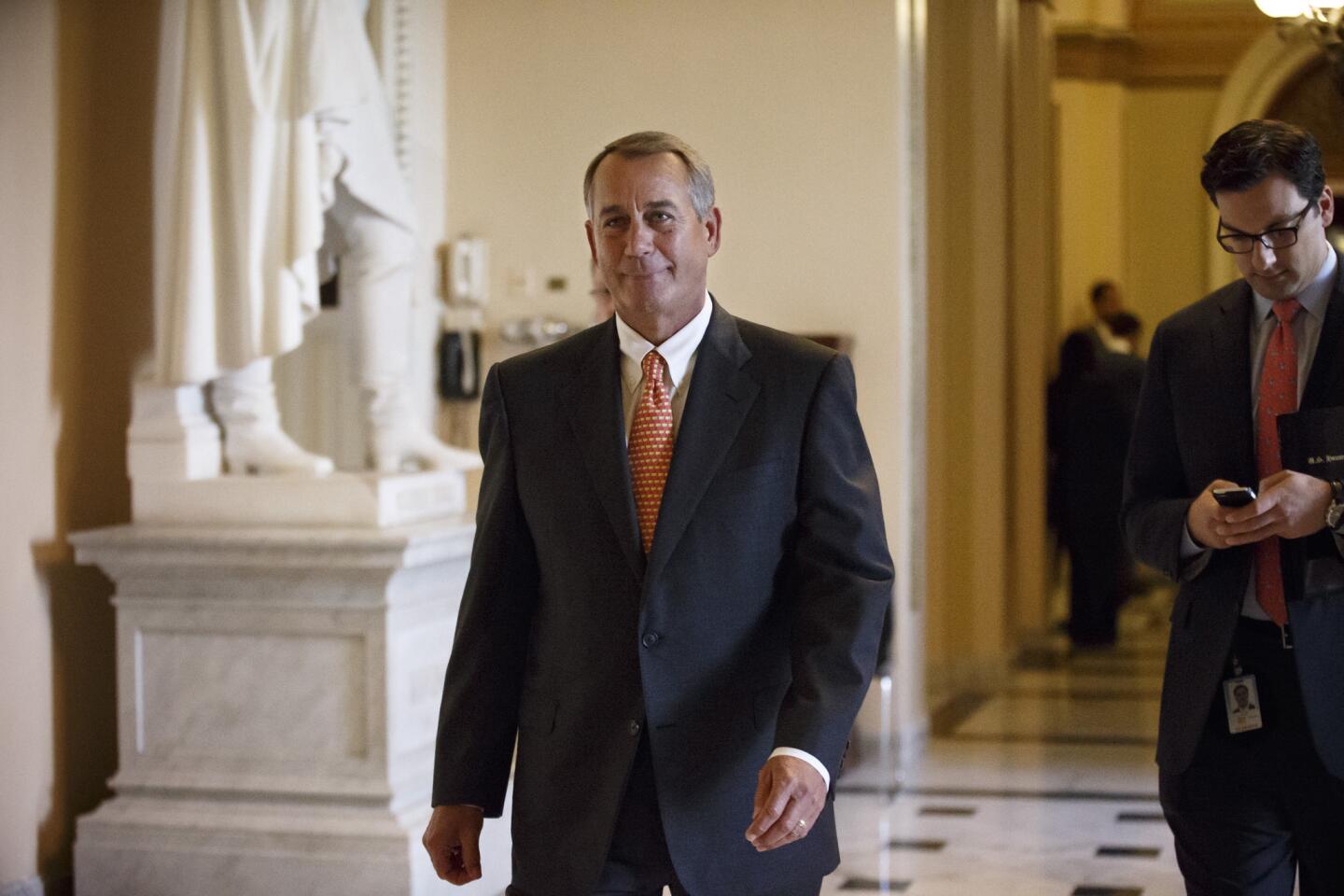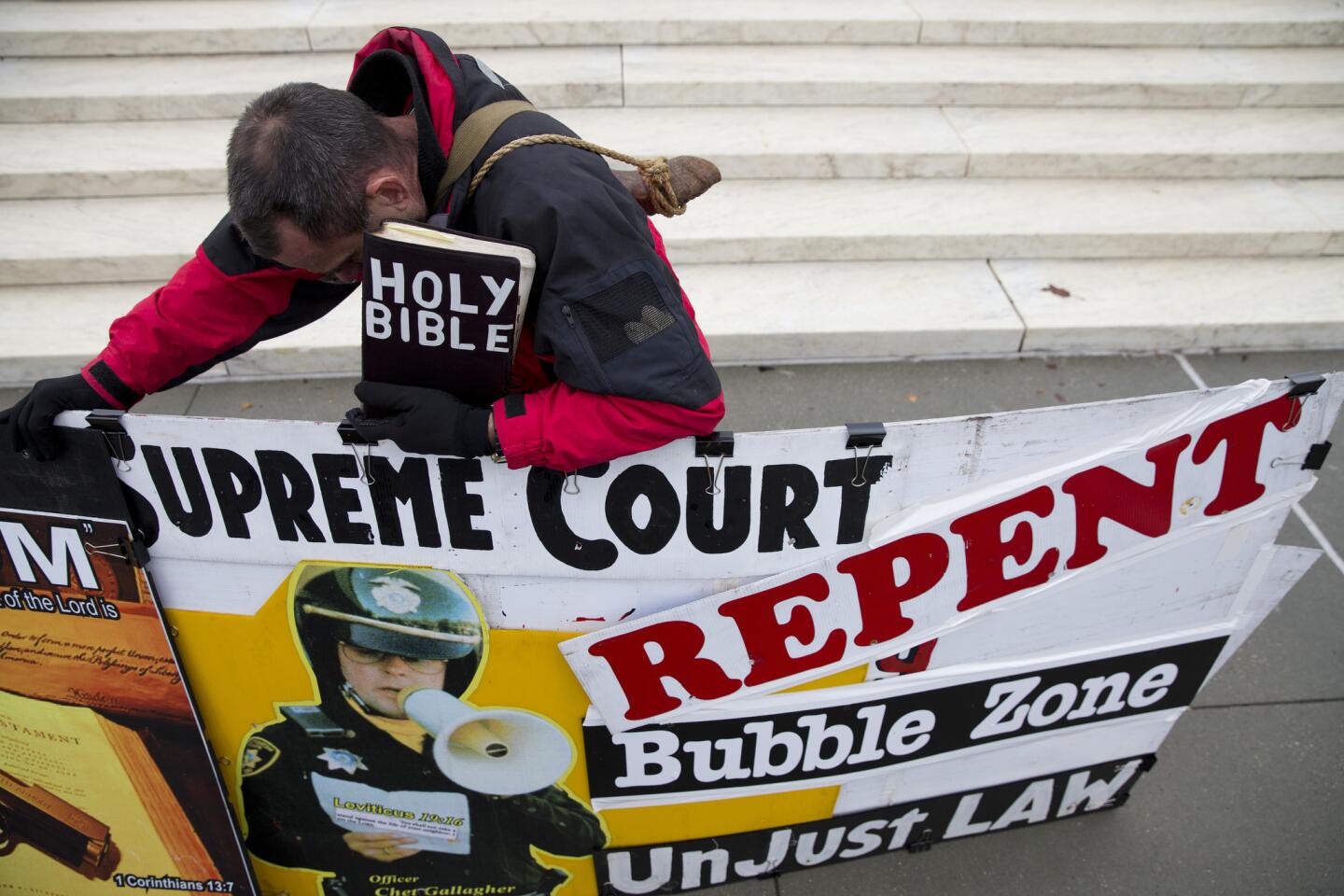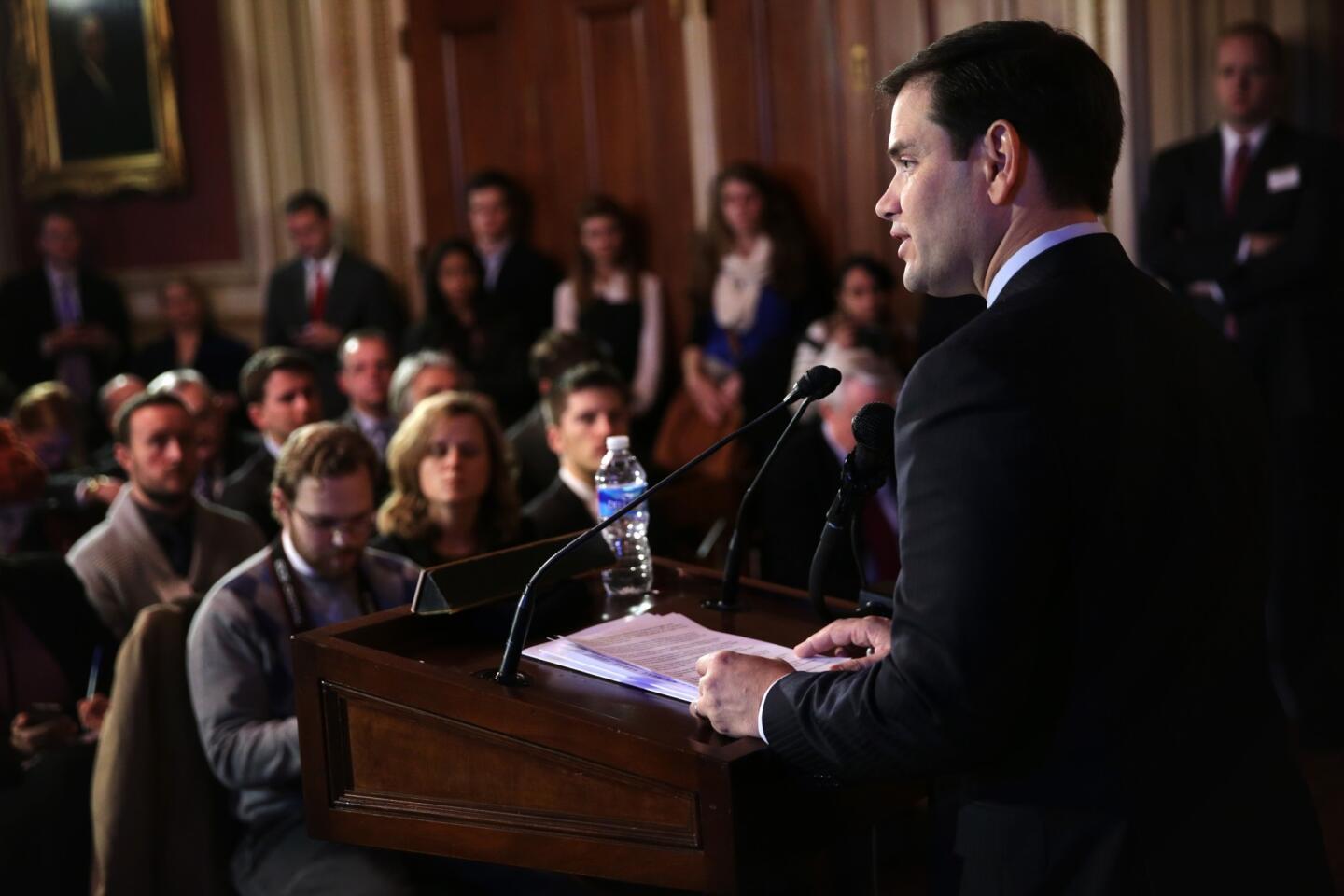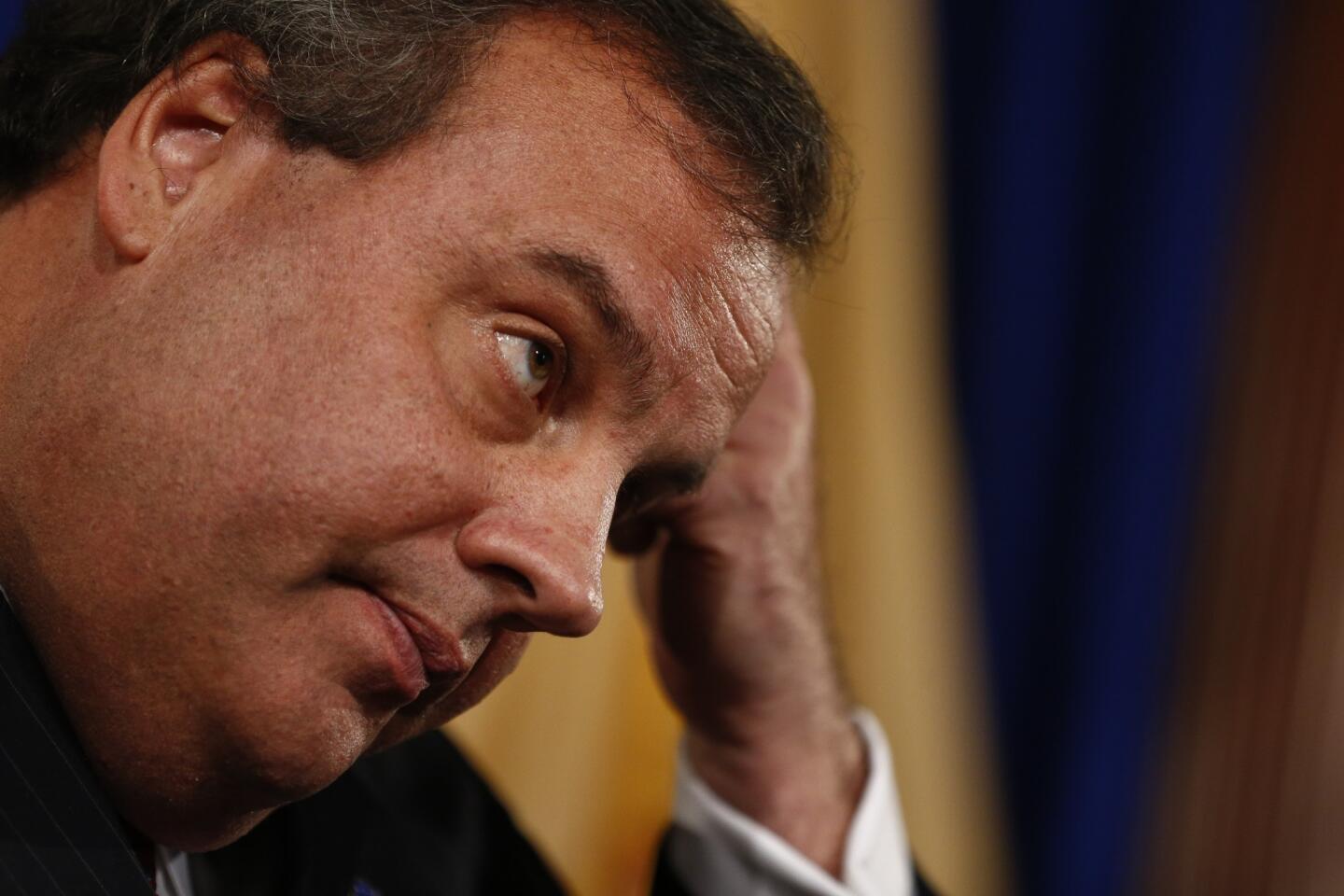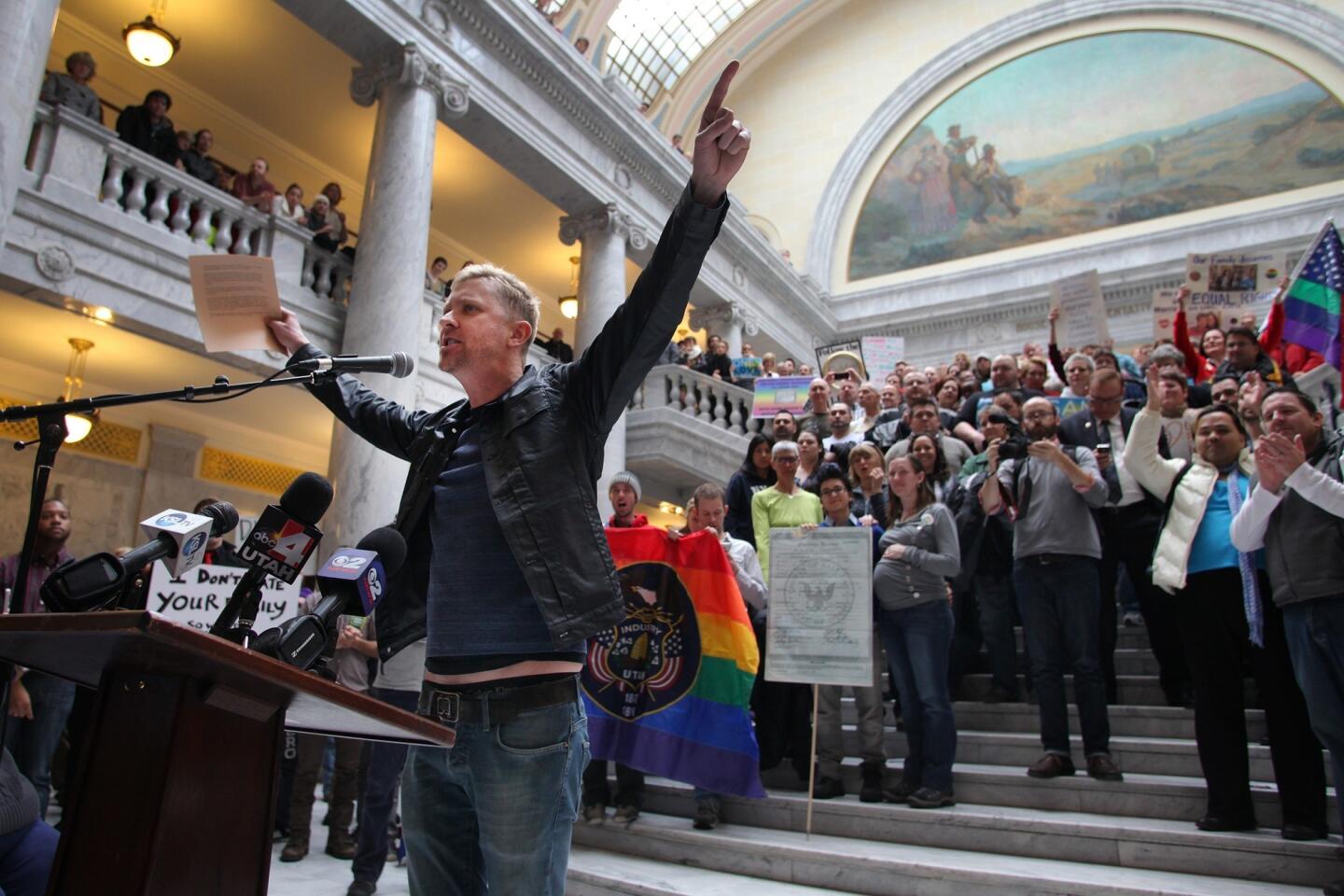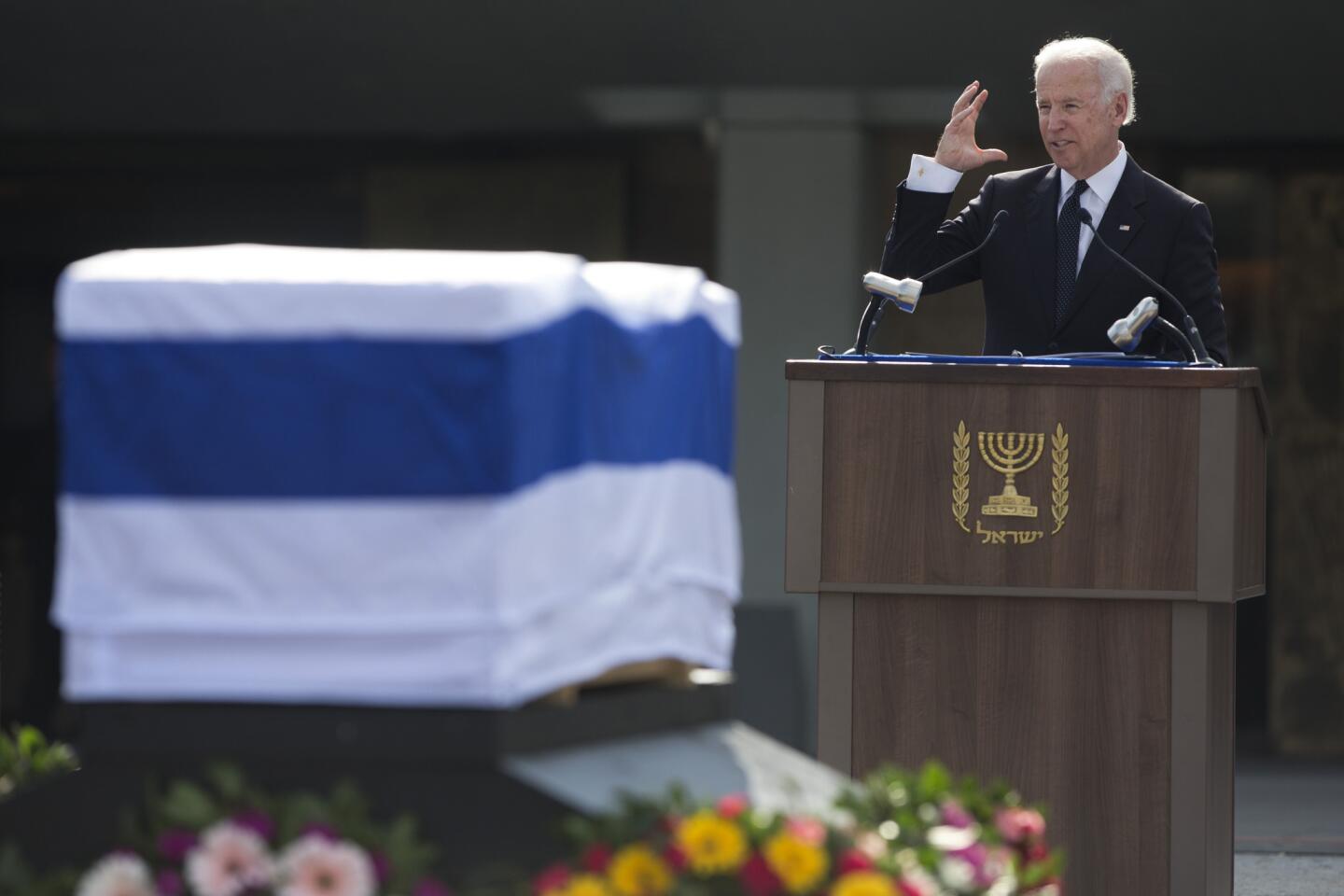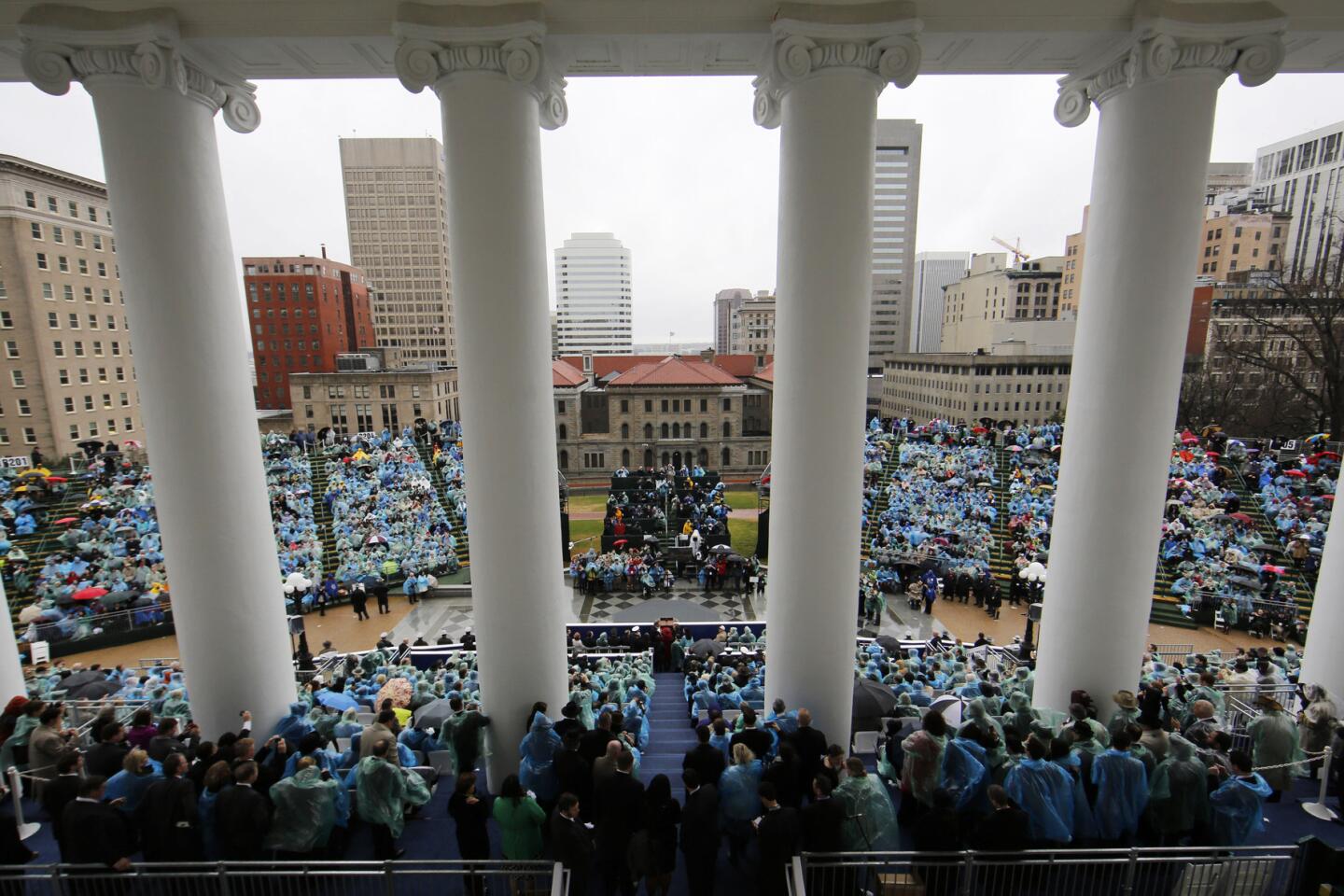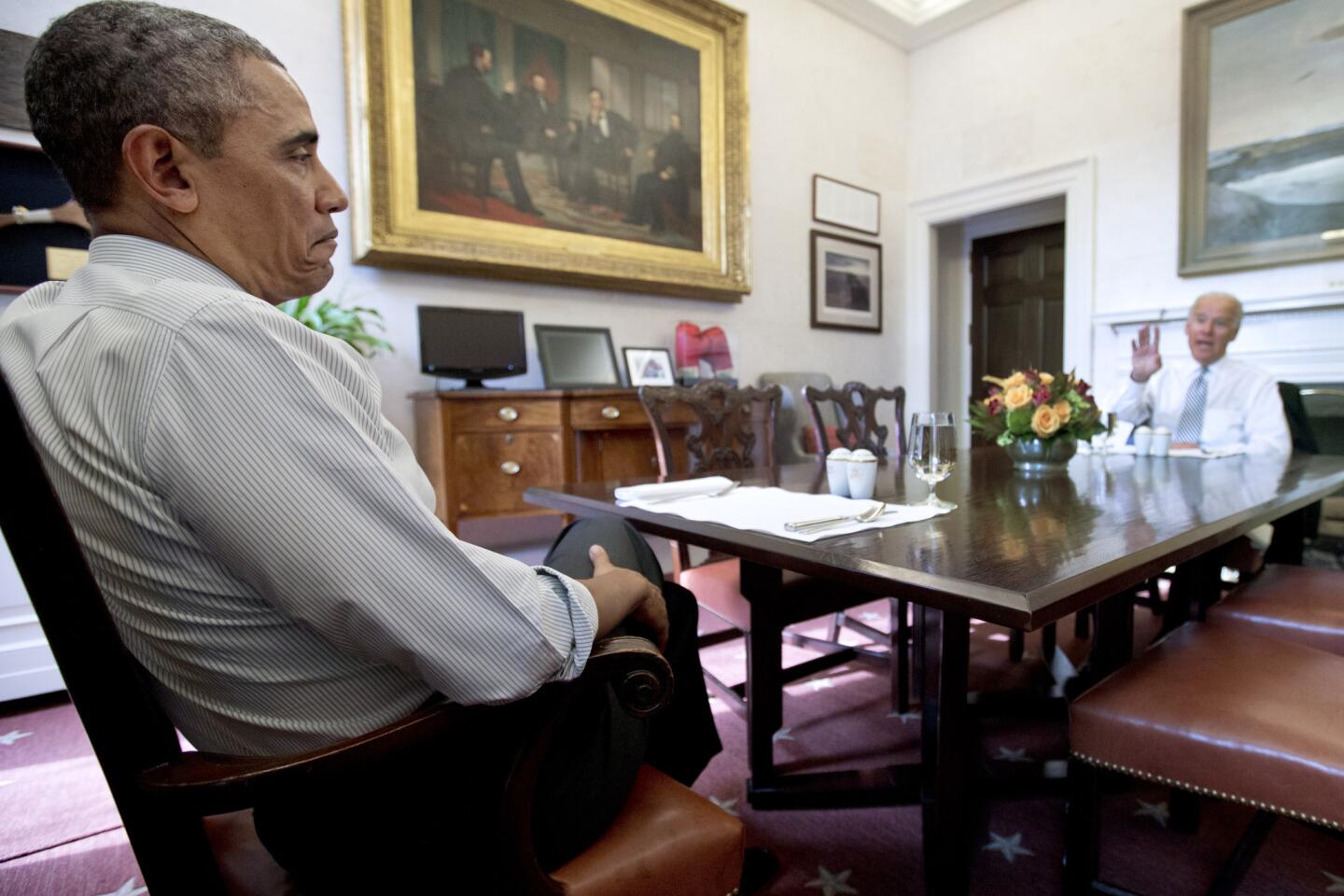Supreme Court hints it may limit president’s recess-appointments power
- Share via
WASHINGTON — The Supreme Court hinted Monday it may move to limit a presidential power used since the days of George Washington to fill high-level vacancies during Senate recesses.
A top Obama administration attorney ran into sharp skepticism from justices while defending the presidential power, granted in the Constitution, to bypass the Senate and make recess appointments when lawmakers are not in session.
Use of this power has grown more controversial in recent decades as both Republican and Democratic presidents have clashed with Senates controlled by the opposing party. The Obama administration says many of its nominees to agencies and courts in recent years have been blocked by Republican filibusters for political reasons. Republicans say Democrats did the same thing during the George W. Bush administration.
In recent times, most presidents have relied at one point or another on recess appointments to break partisan deadlocks and see their nominees seated temporarily. But Monday’s oral arguments marked the first time the law has been debated at the Supreme Court.
The case calls on the high court to decide whether the Constitution allows the president to circumvent the Senate when it refuses to confirm his nominees and what exactly constitutes a recess.
Last year, a U.S. appeals court in Washington said President Obama violated the Constitution when he used the recess-appointment power to fill three seats on the National Labor Relations Board in January 2012. The Senate was not meeting then, but it was holding brief “pro-forma sessions” to indicate it was not on a true recess.
U.S. Solicitor Gen. Donald Verrilli Jr. said this decision, unless reversed, “strips the president of an authority” that has been used for more than 200 years.
But nearly all the justices questioned whether the president can simply bypass the Senate by saying its brief break amounts to a recess.
Justice Elena Kagan described the recess-appointment power as “a historical relic,” designed for an era when lawmakers could be gone from Washington for months. “This is not the horse-and-buggy era,” she said.
If justices curtail the presidential power, the short-term effect on Obama could be muted because the Democratic-controlled Senate scrapped a long-standing filibuster rule that had allowed the current Republican minority to block many of his nominees. But if Republicans succeed in taking back control of the Senate this fall, the court’s ruling could carry more weight.
Based on the tenor of the questions, justices appeared likely to rule against Obama, but they did not signal whether they would hand down a broad or narrow opinion.
They could rule narrowly that Obama went too far by making appointments during a brief break rather than a formal recess, or they could rule broadly that the Constitution does not allow the president to make recess appointments whenever the Senate could be called to vote on a nominee.
Twitter: @davidgsavage
More to Read
Sign up for Essential California
The most important California stories and recommendations in your inbox every morning.
You may occasionally receive promotional content from the Los Angeles Times.
